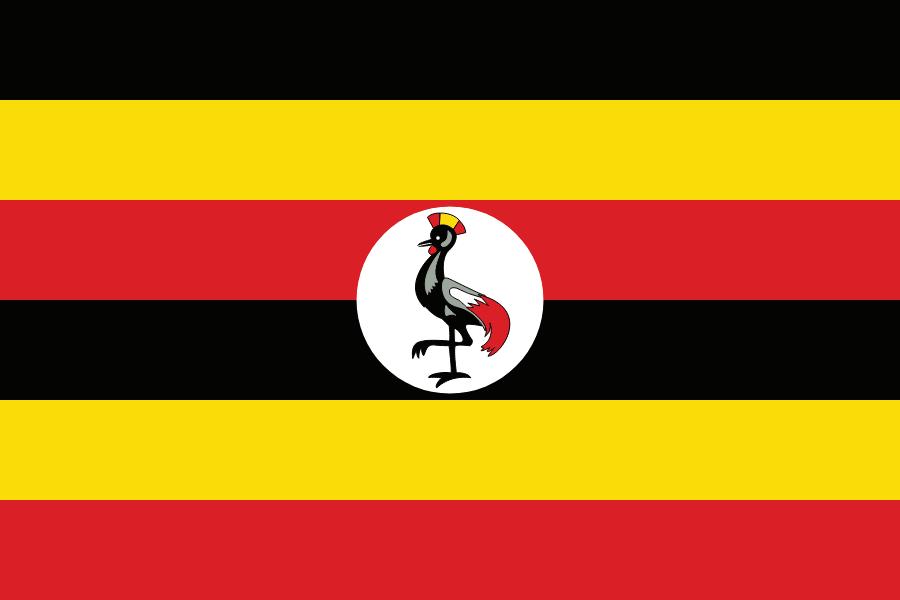
82 minute read
Reflections on My Leadership Journey
While research has shown that to a large extent leaders are made rather than born, I believe I was born a leader. Born in Maar, Twic East County, Jonglei state of South Sudan, growing up was close to impossible. I grew up during a time when there was a lot of insecurity, violence, and chronic poverty. Rural Maar village had a population of fewer than 3,050 people and less than 85 pupils schooling under trees. The only people I knew who had been to school were my teachers. Many of the girls got pregnant and dropped out of school while the boys resorted to pastoralism and the others were recruited by rebels. I had no role models in terms of academic or career aspirations.
These horrible living conditions are what pushed
Advertisement
my parents to flee to Kenya via lorry. On getting to the Kakuma refugee camp in Kenya, I studied under the (United Nations High Commissioner for Refugees) UNHCR schools. This experience greatly shaped my perspective on life and from then I committed to bring about change in my community.
Being raised in a traditional African extended family, I was always assigned responsibility such as looking after domestic animals as well taking care of my youngest siblings while the parents were away which I accepted and executed well. Despite being among the younger children, I was the eighth child in a family of more than ten children and nephews, my parents found
that I had the leadership qualities and was able to lead the rest of the family. These responsibilities, coupled with my education career have progressively shaped and molded me as a strong leader. My leadership aspirations have also been inspired by great African leaders especially Nelson Mandela.
Throughout my career, there have been peak events that have greatly shaped my perspectives on leadership. Over the past six years, I have worked in different reputable organizations including a financial institution as well as consultancy firms. Serving in different leadership portfolios in the above organizations as well as social bodies only changed my perception of leadership. I have always thought of leaders as great people in political organizations, top company officers like General Managers, or Chief Executive Officers. However, I have come to realize that lots of ordinary people championing change around us and we fail to praise them the way we should, while we keep thinking about the great men. I have nothing against the great men, however, I think we should pay tribute to the people that surround us and that strive to make the world a better place each day for all of us and future generations. Such people include student association leaders, young people who have come up to address societal challenges, mid-level managers in business organizations, village chairpersons, teachers as well as religious leaders in local churches. These people have touched and changed many people’s lives but they always go unnoticed.
RESEARCH
Constantly seeking new knowledge and finding solutions
Constantly seeking new knowledge and finding solutions to society’s challenges is at the heart of great leadership. Leaders with great research skills can easily confront emerging challenges
to society’s challenges is at the heart of great leadership. Leaders with great research skills can easily confront emerging challenges as well as learn new leadership best practices. Like they say ‘knowledge is power’, research unlocks potential in leaders, it makes them think out of the box since they become creative.
By going through the Master of Science in Development Finance Programme at Strathmore University Business School, I have gained research experience from the various lecturers and professors. I have also gained inclusive experience that led me to write and emerged as the first World Bank ‘Blog 4Dev 2019’ winner for South Sudan that was then pub-
lished on the World Bank website. Further, I have written many articles including the Developmental Challenges and Opportunities in Africa which was featured in Mandela Institute for Development Studies (MINDS Africa). I am passionate about knowing what is going on in the world. I therefore read and follow both local and international news. I write articles on pressing societal issues such as corruption, bad governance, girl child marriage, child solider, and nepotism in local newspapers (Juba Monitor) and PaanLuelAwei (Online media) in South Sudan. Leaders of creative work identify and coordinate requisite expertise for projects, create shared mindsets about mission direction, define strategies for carrying out the work, and orchestrate an environment characterized by intellectual stimulation, communication, and productive conflict. This, therefore, makes research a key skill for contemporary leadership.
CLASS INITIATIVES
My quest to influence and inspire others saw me take on leadership roles at quite an early stage of my education journey. I have been in the Strathmore University Community Outreach Programme which aims to help the needy families and students from the informal settlements. I have developed several leadership qualities through volunteering including getting space to try out new things, developing the spirit of giving, learning, building, and widening my networks, gaining confidence, and passion to influence others. My leadership character is premised on serving people while expecting nothing in return, always focused on change, always admitting and learning from mistakes, active listening, promoting diversity, and working together
to achieve more. I also believe that true leaders have a quest for knowledge, they keep learning to better their skills in communication, technology, project management, social work, business administration, and several other fields which affirms the saying that leaders are made. Learning history further heightened my passion to influence others after getting to know of great leaders like Kwame Nkrumah, Patrice Lumumba, Jomo Kenyatta, Che Guevara, and Fidel Castro.
SOCIAL IMPACT PROJECT
I believe leadership is about bringing change in people’s lives by finding solutions to society’s challenges. To improve myself, first, I need to be able to give people more freedom of choice, let them make more decisions, and support them. Even if those decisions are not what I stand for; however, they are better for the majority or for the group itself. Therefore, I have tried to bring about change in the lives of refugees by establishing a social development club called Helping Others like You (HOLY Africa) that focuses on books drives and the establishment of libraries in Kakuma Refugee camp. I believe that only knowledge can unlock the minds of refugees, many of whom have almost lost hope. Refugees and asylum seekers often constitute very heterogeneous groups, hailing from various countries with various languages and cultural backgrounds. In the beginning, libraries can therefore offer them only general services. The contribution of libraries to a welcoming culture consists of facilitating access to information, knowledge, and encounters. Only once interest is awakened can libraries target the specific needs of the individual.
CONCLUSION
I have touched on several aspects of the leadership process, which I have collected through my childhood upbringing, work, and school experience. In summary, I have come to see leadership as a dynamic process that occurs in human organizations as actors perceive emerging possibilities and choose to take action. The willingness to do so is strongly connected to the actor’s internal states and engagement of the fundamental state of leadership. Finally, the effectiveness of the actor may be impacted by the actor’s sphere of influence and by his/her formal or informal status and authority to act, and organizational readiness to embrace the change. I look forward to further developing these understandings as I continue on my leadership journey.
By Manyuon, Daniel Athior Atem, MSc. Development Finance Student, SBS Email: daniel.athior@strathmore.edu

Tourism Innovation: Taking the Lead in Kenya Through Technology

Tourism is a crucial part of the Kenyan economy, being among the top foreign exchange earners for the country alongside diaspora remittances and agriculture. According to the Ministry of Tourism and Wildlife statistics, Kenya is the third-largest travel and tourism economy in Africa after South Africa and Nigeria. The contribution of travel and tourism to Kenya’s GDP in 2019 stood at 8.8%, an increase of 3.9% from the previous year with 2,048,334 international visitors arriving in Kenya.
Online travel market places have been the trend with Airbnb, GetYourGuide, and Expedia having proven success in the global tourism space. The Kenyan youth have not been left behind to in-
novate and create technological solutions for this sector. While it is true that most startups focus on financial inclusion and agriculture, with a quick search on the internet you will find quite a number of tech-startups in the travel and tourism space.
This article tries to showcase some local tech solutions in the travel, tourism, and hospitality sectors.
JIRANIS FOOD
Jiranis Food is a web-based platform that connects users with chefs, who host them for meals at their own homes or deliver to the user. The startup is in the sharing economy model. Chefs can register as a host in the platform and list their offering.
The startup will also save food tourism that is largely underdeveloped in Kenya.
CLOUD 9 XP
Cloud9 XP is an online marketplace for leisure experiences. Tourists are able to book experiences from one portal, whether it is a scuba diving experience, kayaking, or even camping. The website aims to list as many experiences around Kenya and beyond. The startup’s mantra is “High On Life”, as it looks to assist positive, adventure-seeking free spirits in looking for merchandise and experiences.
KARIBU TAXI
When travelers have booked their flight tickets, hotels, safaris, and events tickets, the next thing is to figure out how to leave the airport and get safely to a hotel, resort, restaurant, or attraction. Karibu Taxi is an Online Travel Agency that will be able to list all airport transfer providers in one online portal. Travelers are able to search, compare, book, and pay for their airport transportation ahead of travel. The company has been able to set up camp in major airports in Kenya and beyond and is now attempting to serve even smaller airports and train stations.
LAST MINUTE MARA
Last Minute Mara is an online booking platform offering last-minute deals to Kenya’s leading nature reserve - the Maasai Mara. The company takes pride in being the country’s first booking portal to make the Mara’s most exclusive camps and lodges available at affordable prices when booked within 30 days of travel. The booking process is seamless and very fast. It has been integrated with air transport such that local travelers can book a camp in the
Maasai Mara without calling an agent.
PITCH KAMBI
Pitchkambi is a new travel website for campers and nature lovers, where they can find and book campsites and simple nature-based experiences across Kenya. The website handpicks authentic campsites and experiences paired with real pictures, to help our users experience quality nature-based experiences. Through the website, campers will easily search and book their favorite camping experiences seamlessly.
This article is not conclusive, you can let the writer note of any travel tech startups in Kenya that the writer has not highlighted.
By Peter Kibe, Executive Training Manager, Strathmore School of Tourism and Hospitality. Email: pkibe@strathmore.edu

BRIDGING THE DIGITAL DIVIDE:

The Impact of Kenya’s 4G Balloon Network Project
This article takes a close look at the July 2020 launch in Kenya of the 4G balloon based network technology, a product of Google’s laboratory project. It argues that though it looks futuristic, it currently faces implementation challenges and the impact may not be felt anytime soon by both the implementing partners and the country. In July 2020 Kenya’s Cabinet Secretary (CS) for Information and Communications (ICT) Joe Mucheru made a surprise visit to Radat, a small village in rural Kenya to launch a 4G internet connectivity service run on balloons stationed above the skies. The initiative follows an agreement between Tel-
kom Kenya Limited, the local internet service provider, and Loon LLC, an Alphabet Inc owned subsidiary, as the provider of the innovative technology. Alphabet is also the parent company of Google.
The launching of the service in a rural setup was strategic and intentional. Radat village, tugged between hills and valleys at the bottom of the Great Rift Valley, lies about 250 KM north of Nairobi. The climate is semi-arid, the terrain harsh and the human population low, with the main source of the people’s livelihoods being rearing of indigenous livestock as well as honey farming. In short, Radat represents a classic venue of a remote rural community where internet connectivity would not reach easily.
THE BALLOON PROJECT: BACKGROUND AND HOW THE TECHNOLOGY WORKS
According to the information from the Telkom Kenya website Project Loon is a network of stratospheric balloons designed to provide internet connectivity to rural and remote areas worldwide. It is a spinoff from Alphabet Inc laboratory Project X, which after several trials, was released to be run by Loon LLC as an independent commercial venture. Loon inked an agreement with Telkom Kenya Ltd in July 2018. In March 2020, the Kenya Government announced that it had granted the necessary approvals for the Telkom Kenya-Loon LLC Project, leading to the formal launch by the Cabinet Secretary in July. According to Loon , nearly half the world’s population lacks access to basic connectivity and this project is aimed at bridging this digital divide.
The service works by beaming internet connectivity from base stations on the ground to balloons 20 KM overhead. The balloons, placed at the earth’s stratosphere, act as floating base stations and are linked to the ground stations that have been connected to the Telkom Kenya network, where its users can access 4G internet services through their devices. They are powered by solar panels and controlled by software on the ground and can last for well over 100 days in the sky. In Kenya the service will initially cover a region spanning nearly 50,000 square kilometers targeting Counties in central, north and western parts of the country. The launch is a culmination of years of negotiation between Loon, Telkom Kenya and the Kenya Government.
PROJECT PART OF KENYA’S STRATEGY TO BRIDGE THE DIGITAL DIVIDE BEYOND ITS BORDERS
From the early 1990s, the Kenya government has taken systematic and deliberate policy interventions to invest in information and telecommunications technology (ICT). This policy direction was informed by the realization of the immense socio-economic benefits that can be derived from the use of ICT. This strategy has paid off, given that Kenya is now highly regarded as one of Africa’s leading countries in innovation powered by ICT, proven by initiatives such as Mpesa whose social transformative effect has captured the world’s attention.
Kenya’s strategy has shifted in recent years to expand opportunities beyond its borders. This is shown by the unveiling of the Kenya’s Digital Economy Blueprint , launched at the Smart Africa Summit held in Rwanda in 2019. In this document, presented as Digital Economy Blueprint for Africa, ICT infrastructure is recognized as one of the five pillars needed to guide the development of the ICT in the continent. It is aimed at bridging the digital divide in Africa, given that it is the region in the world with the lowest penetration of the internet. Africa has a population of over 1.3 billion people and Kenya hopes to reap from expanded

digital market economy but realizes that this can only happen if the continent is digitally networked.
WHY THE PROJECT IMPACT MAY NOT BE FELT SOON
Though well-intentioned, the Telkom Kenya/Loon project is faced with challenges, key among them are the following:
THE NEGATIVE ASPECTS OF BEING THE GUINEA PIG.
Available information indicates that Kenya’s strategy this is the first time Project Loon is has shifted in recent being tested as a commercial trial in Africa and possibly elsewhere. Media years to expand reports indicate the project has preopportunities viously only been used in emergency situations such as was the case in beyond its borders. Puerto Rico in 2017 after a hurricane THE MARKET SIZE OF THE This is shown by destroyed all telephone towers. Novelty comes with its share of challengIMPLEMENTING PARTNER IN KENYA. Industry statistics from the Commuthe unveiling of the Kenya’s Digital es. Telkom Kenya acknowledges this as much and it cites on its website impediments such as wind patterns and nications Authority of Kenya shows that as of June 30th 2020, Telkom Economy Blueprint restricted airspace. It also says that since the balloons are solar-powered, Kenya’s market share of mobile phone subscription was customers will experience availability of services only beonly 6%, behind Safaricom’s 64.2% and Airtel Kenya’s tween certain times of the day. Though it can be described 26.8%. The remaining 3% market share is held by Equitel. as near monopolistic, competition in the telecom sector In addition, the market share in mobile internet subscrip- in Kenya is extremely fierce and would hardly allow time tions per operator follows a similar pattern with Safaricom for trials. Besides, the customers are not particularly recepat 68.7%, Airtel at 26.0%, Telkom Kenya at 5.0% and Eq- tive. It is instrumental to note, for example that soon after uitel at 0.4%. This means that even at its full implementa- the launch, Kenyans who experienced connectivity chaltion, the impact of the project will only be felt by a small lenges, started posting aerial maps on social media shownumber of Kenyans, unless Telkom’s market share were to ing that the balloons had been swept away by the wind and increase drastically. But given the myriad of historical and were now residing in neighboring countries. In short, in administrative challenges Telkom Kenya has gone through addition to the fact that the project’s overall reliability and since deregulation of the sector in Kenya in early 90s, this resilience is yet to be tested, the market is not very receppartnership may not make much difference in terms of tive for such a project. It is possible, as reported by one market share. media house, that the solution being provided by Loon is inordinate for the problems in Kenya.
THE CHOICE OF THE LAUNCH COUNTRY.
By its very nature, the Loon project targets remote and Or perhaps the Telkom Kenya-Loon Balloon project is rugged regions of the world where other forms of ICT in- way ahead of all of us. frastructure would be too expensive or too risky to mount. Kenya, for the most part, does not fit this description. In its annual report of 2019 Safaricom indicates that with its 6,700 kms of fiber optic cables deployed across the country, 93% of the Kenyan population has reportedly been covered by their 3G network and 57% by 4G network. On its part the Kenya Government, according to the Information and Communications Authority website has laid over 6,000 km of fiber optic cables across all the 47 Counties. The effect of this is corroborated by statistics from the CA which shows that as of 30th June 2020, mobile phone subscriptions in Kenya stood at 57.0 million subscribers, representing 119.9% mobile SIM penetration in the country. Though the internet penetration in Kenya is still considered low, it is not due to lack of ICT infrastructure. In other words, Project Loon will not be bringing anything transformative to Kenya’s ICT infrastructure space.
By John Sergon, Executive Fellow, Institute of Public Policy and Governance, Strathmore University Email: sergonjohn@gmail.com
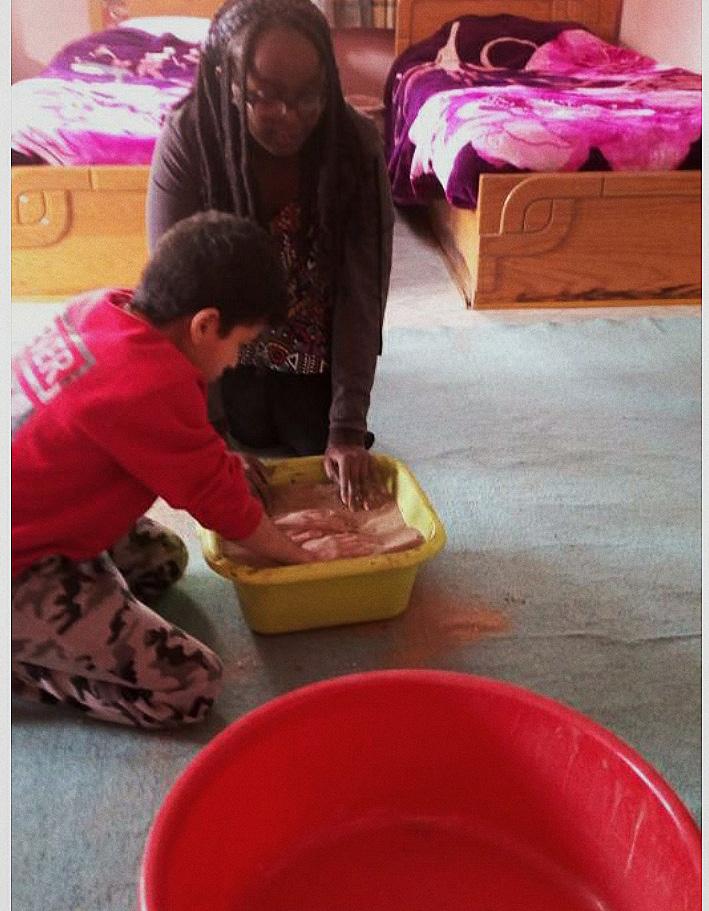
Flying Away to Make a Difference: My Service-Based Learning Experience
It has always been a nostalgic feeling every time I look back and remember the good old times; my first time giving back to society. Strathmore University has created a very good platform for students to get empowered and practice their various skills and expertise in any field through Service-Based Learning. This is by far the best forum to engage the youth in making this world a better place.
I decided to do my community-based attachment in a different country, as I felt the need to interact with a different community and to get a wider point of view on the main issues being faced by various communities, and on the 20th of January 2020, I was on a plane to Cairo, Egypt
eager to take on my role as a middle school teacher at an orphanage. I went as a global volunteer under AIESEC, a youth-run organization that offers students a global experience as a volunteer or intern. The first days in Egypt was about settling down and adjusting to the new environment. Who knew Egypt had winter? Working days from Sunday to Thursday? This and so many astonishing things about Egypt made my experience all the more worthwhile.
The first day of work was quite blissful. I was taken aback by how friendly and innocent the children were. Their
amiable gestures and kind interactions were enough for me to feel comfortable among them. I could see their vibrant faces when the facilitator of the program told them that I was assigned to teach them a foreign language: English. They were quite eager to learn and I was also very eager to teach them. As the days went by, I felt exceedingly compelled to do more than just teach English. With the help of the facilitators, we were able to create room for me and my other colleagues to not only have basic computer classes with them but also have a forum to equip the children with basic life skills such as decision making and problem-solving. This forum was fundamental as it further focused on the talent growth of the students and promoted good mental health. The aim was to create a space for the young ones to explore their capabilities and to learn the responsibilities that come with situations in life.
With Egypt being the third most populated country in Africa with a population of approximately 103 million, a lot of societal issues are bound to arise. An article from Al Tamimi & Company (2018) suggests that the average number of students in a public classroom is 45 yet every year an additional 500,000-700,000 students join school, which in turn has caused an infrastructure difficulty. The article also states that quality education in Egyptian public schools is daunting. The need for me and my colleagues to contribute to the orphanage and a few nearby schools was quite necessary so we teamed up with some AIESEC members and from our contributions, we were able to bring in some school resources like books and stationery. My colleagues and I were able to encourage the few small schools we visited to incorporate a program designed to enrich students with skills and encourages talent development, to improve the quality of education. sources were inevitable, however, no difficulty can dishearten a man who has acquired the art of being alive. The trip to Egypt was nonetheless mind-blowing. Aside from visiting the famous Egyptian pyramids and touring breathtaking tourist destinations, the experience has certainly pre-exposed me to life outside the classroom, equipping me with professionalism and enhanced me with fundamental skills such as leadership, being a team player, and problem-solving skills. To add to that, the happiness of giving back to society is always unmatched. Youth impacting and giving back to society should not be a choice but a
Challenges such as language barriers and inadequate resources were inevitable, however, no difficulty can dishearten a man who has acquired the art of being alive.
responsibility. With all our potential, we as the youth can bring heaven on earth. It is the little steps that we take that bring greater change. Currently, colleagues and I are in communication with some of the global volunteers we met in Egypt. God willing after this COVID pandemic, we are planning to carry on with more projects based in Kenya that are driven towards improving the quality of education and providing more resources to schools. We will furthermore be recruiting interested students from Strathmore University who would like to volunteer with us.
Before I finish, I would like to leave you with my favorite saying by Mahatma Gandhi that goes; the best way to find yourself is to lose yourself in the service of others.
By Yvonne Mwangi, Bachelor of Commerce Student Email: yvonne.mwangi@strathmore.edu


First Public Lecture on Building a Competitive Livestock Industry and reshaping the sector in Kenya through value chains
Considering that the livestock sector employs close to 50% of Kenya’s agricultural labour force and is also a primary source of livelihoods for over 6 million pastoralists and agro-pastoralist communities in the country’s arid and semi-arid lands (ASALs), its importance to the Kenyan economy was brought to the fore during a Public Lecture held this week on Building a Competitive Live-
stock Industry and reshaping the sector in Kenya
through value chains by Strathmore University Business School (SBS) in partnership with the President’s Delivery Unit (PDU).
As the first Public Lecture in the series entitled “Post-COVID 19: What the Big 4 Agenda can do for Kenya and Africa,” the session facilitat-
ed a dialogue for better coordination between the government and private sector in developing and implementing transformative strategies geared towards increasing the productivity, profitability, employment and safety of the meat industry based on the new norm.
It also focused on areas of potential investment by the Private Sector since the Big 4 Agenda is hinged on Public Private Partnerships (PPP). By bringing together all stakeholders across
the Livestock Value Chain, the Public Lecture brought out the potential of the sector in Kenya’s economic growth, opportunities and challenges and how policies and innovations can transform the sector towards livestock production efficiency in the 21st Century.
As the keynote speaker during the Public Lecture, Dr. Fred Matiang’i the Cabinet Secretary, Ministry of Interior and coordination of Government said that for Kenya to realise the competitive potential of the Livestock Sector locally and regionally, “we need to develop a culture where there is close relationship between policy and politics.”
Giving an example of the government’s intervention to transfer the Kenya Meat Commission (KMC) to the Ministry of Defence, Dr Matiang’i said that the takeover has enabled the entity to clear 256 Million shillings debts owed to livestock farmers. Additionally, a further KSh.150 Million was allocated to clear other general suppliers’ debt in this financial year. This intervention served the mutual interests of the two organizations since the military is the largest client of the KMC and therefore had a stake in the improved efficiency of its management. “The delivery of livestock to KMC since the military takeover has grown by 28%”, said Dr. Matiang’i. In response to outbreaks of trade sensitive diseases, Dr.
Matiang’i explained that currently the government is developing Disease Free Zoning facilities in Kenya. Considering that the country’s disease situation has created a barrier for trade leading to loss of potential revenue and foreign exchange, the Bachuma Livestock Export Zone (LEZ) will be able to offer livestock screening services, to ensure animal health control in livestock product exports. Furthermore, in order to meet the demand for livestock products in and out of Kenya, the Livestock Breeding
Programme’s mandate will provide a steady supply of wellbred livestock of early maturing animals. This has been achieved through community breeding schemes such as breeding farms and artificial insemination efforts. Thus far the government has introduced breeding and multiplication farms in Kimose (Baringo County), Nomotio (Kajiado County), Nasukuta (WestPokot County), and Narok County.
Despite the fact that Kenya is 3rd in Africa in livestock population and there is tremendous untapped potential in the leather sector, Dr. Matiang’i also stressed the importance of value chain in relation to hides and skins across the country, “The value addition here still remains a key challenge. However, the Government has made considerable strides with the Kenya Leather Development Council. A key example is the Ewaso Ngiro Leather and Tannery in Narok County to support the pastoral community.”
Bringing the perspective of academia, Dr. George Njenga, the Executive Dean of SBS reinforced the importance of partnership and the use of evidenced based policy approaches. “It is time that we respect the process of thinking through scientifically and connecting to results, these two things, scientific process and results is very core.’’ He added, “The infrastructure that is being put in place to set up a

scientific center with an administrative board should have a triple helix approach: Academia, Government and the Private Sector players. This will help to inform government decisions in the future by providing informed ideas that are well grounded in data.”
Mr. Harry Kimtai, Principal Secretary for the State Department for Livestock said that the most important intervention that the Government has to make in the Livestock Sector is the development of a proper regulatory framework. According to him the sector has long been operating under an outdated regulatory framework which has not been updated in line with the current constitution. He asserted that this issue has now been addressed, “The new policies which have been developed such as the National Livestock policy and the Veterinary policy published in 2020 are now ready to guide the sector.”
He further elaborated that the Kenya Dairy industry also had an outdated regulatory framework. New regulations have been developed to address the advancements in the industry. The dairy industry contributes 4% to the Country’s GDP. Kenya’s total milk production is estimated at 5.2 Billion Litres with 75% being that of cow milk. Generally, milk production in Kenya is small-holder driven and therefore aggregating these smallholder farmers into Cooperative Dairy Farms (CODAFs) leads to economies of scale, higher productivity, better quality of milk and increased profitability and incomes to producers.
Mr Kimtai said that the government is ensuring that the sector is able to respond to the domestic livestock production for both local markets and international markets and that the sector players are able to see available opportunities. He explained that the Livestock bill will now improve the existing fragmented laws and has been submitted to the Attorney General and is awaiting publication. The bill will represent the government institutions that were not properly anchored to the law before such as the Kenya Animal Genetic Resource Agency and other training institutions that support the Livestock sub sector.
Discussing the cost of feedlots, the P.S Kimtai said that the bill will also improve regulation of the sector by introducing a Livestock Inputs and Products Regulatory Authority. A Livestock Products and Marketing Board will also help to support livestock farmers to market their products. The National Livestock Regulatory Board will therefore help to regulate all other activities within the sector.
Globally countries are investing heavily in genetics and breeding programs and the Kenyan government is following suit. The Livestock Research Organization has been created to deal with livestock research and breeding programs. A Livestock Masterplan is being developed to improve this process.
In order to cushion the pastoral community from the ravaging effects of drought, the Feedlots Development Programme was established to ensure animals are well fed to reach desired maturity levels and protect animals from diseases and death. The Government, through the State Department of Livestock is embarking on the investment of 50 feedlots, investment in eight beef breeding schemes, development of 10,000 acres of high-quality pasture and fodder plots. So far, 14 Feedlot sites have been identified in government land and 7 in private holdings: 5 in Laikipia, 1 in Garissa and 1 in Kajiado. However, the lack of a framework by the National Land Commission that enables the private use of government land by private investors poses an ongoing challenge.
Dr. Maurice Cheregony, CEO, Rhoteach Limited one of the panelists during the session talked of the effect of climate change on the sector and the importance of capacity building to meet market demand. Dr. Christie Peacock, Chairman of Sidai highlighted the importance of privatising the vaccine sector since there is high level of livestock mortality in Kenya. According to her, Kenya loses over 30% of livestock every year, “We lose KShs 1 billion which can be prevented through vaccination.”
Representing the youth, Elisha Bwatuti, a Dairy Farmer, Agricultural Technologist and a Director of Shamba-Intel Africa Limited, said that there is little training in the sector and this does not encourage the youth to see it as an opportunity for job creation. “The message being communicated is that the sector is a retirement package,” he said. The panelists which represented the private sector and academia, explored how the feedlots cost can be reduced to help farmers and what incentives can be given to the Private sector in this area. How extension services can be empowered to give quality services to farmers such as access to watersheds by small-scale farmers.
In conclusion, the public lecture brought out the increasing market demand in the livestock sector and how it affects 2 million Kenyans directly. Furthermore, the livestock sector requires a review that provides concise data and information about the nature of current and emerging vegetation, land and water degradation problems and their effects, including greenhouse gas issues and there is a pressing need to develop capacity of young people to take the sector to the next level.
Resilience: What it Means for Business Leaders

One word that we have consistently heard mentioned during the COVID-19 pandemic is ‘resilience’. Whether you are running a business, are an employee, working in the public or non-profit sectors, we are all talking about being resilient. What then is resilience? Resilience has been defined as the ability to bounce back after being stretched, pressed, pulled, or bent. The ability to become strong, healthy, and successful again after something bad or difficult has happened. The year 2020 has indeed presented this image to us. The measures taken to contain the pandemic have resulted in stretching, pulling, and pressing us, forcing us to rethink our business models, markets, processes, products and service delivery, and customers as well as our leadership and people management styles.
Although we have pointed fingers at the pandemic for the woes in 2020, the reality is that constraints and challenges are an inevitable part of our professional and personal lives. Irrespective of how strong and competent we are, challenges and constraints are there, often to remind us of our limitations. But constraints, as it turns out, also provide us with a unique opportunity to discover and employ our strengths in a way that enriches our lives, relationships, and businesses. Constraints alter the path that we take, even in the instances in which we may feel like we have no options. They offer us a chance to be innovative and provide value in surprising ways. Finding our way through a crisis means different things to different
people. But in all instances, it is likely to involve a combination of rethinking, exploring, reinventing innovating, and reimagining different ways of working, leading, and managing. The workplace is rapidly evolving through the actions, interactions, and decisions leaders are making every day. We need intellectual humility that allows us to be open-minded to be able to embrace the world as it is, listen more, learn more, be curious and expose ourselves to different ideas and people and the possibilities that they bring.
The success we will achieve in our personal and professional lives will not just be about the quality of our ideas, skills, or effort. It will not merely be data that drives the outcomes of individuals and institutions but rather, their “soft” skills such as personality, social skills, and being perceived as trustworthy, compassion, commitment, empathy, and humility. Our success will also be defined by our pursuit of action with courage, commitment, and resolve. That means that achieving our fullest potential involves recognizing the power in us and those around us and then directing that power to our greatest advantage. Harnessing the power within you to find your advantage – what gives you an edge – is essential for every person who seeks to face challenges with grace and find their path to success.
How can we prepare ourselves and those we lead for a better future? As a leader, how are you making sense of the world around you and taking action? Having a strong sense of awareness enables us to be more level-headed and make wiser decisions. As we navigate through the crisis, each leader and manager should ask themselves three fundamental questions: 1. What are you paying attention to? 2. What matters most to you and others? 3. What are you going to do about it? Answering each question helps to clarify your perceptions about the world around you and consequently guides your actions.
What are you paying attention to? We can use four lenses to answer this question: • Looking inward: What are your sensations, emotions, thoughts, and behaviours about what you are experiencing? • Looking outward (across space):
What is it like in your ecosystem, networks, colleagues, relationships, economy, society, business environment? • Looking through others’ perspectives: What are others attending to? How are they making sense of the world and their experiences? • Looking forward and backward (across time): What has happened in the past, and what can we expect to happen today, in a week, in a month, a year, and beyond?
This first step is about understanding and interpreting your world with discernment, to be able to structure appropriate responses.
What matters most to you and others? Using the four lenses again, we can answer this question: • Looking inward: What is driving your business – the mission, purpose, goals, values, ideals, aspirations, dreams, identity, concerns, and fears about your business? • Looking outward (across space): What matters to your ecosystem, networks, colleagues, relationships, economy, society? • Looking through others’ perspectives: What matters to those you closely interact with – your clients? Suppliers? Employees? The Board? What are they saying about you? Are your behaviours aligned with what matters most and what they expect? • Looking forward and backward (across time): Are your activities, efforts, and commitment of time aligned with creating the future you want for yourself
Cultivate a habit of reflection and intentionality across time and space. This helps to consistently build the mental muscles needed to navigate through difficult and uncertain times.
What are you going to do about it? When you are clear on what matters to you and others, you can design actions to focus on the important matters. • Set clear goals: Prioritise and trade-off as needed across time and space. • Conscious choices: Be intentional and clear in making decisions through uncertainty and change. Remember even indecision is a decision. Do not be paralysed by indecision – make clear choices. • Effective action: Build skills and capacity to thrive, for yourself and your team. • Expand your repertoire: Practice seeing things from different perspectives and lenses. Read and explore the history, possible future trends, and ideas outside your field. Move out of your comfort zone. • Build agility for Volatility, Uncertainty, Complexity, and Ambiguity (VUCA) and disruption: Build your relationship with discomfort by constantly pushing your boundaries to new spaces. Be comfortable with novelty and diversity.
CONCLUSION
Being able to manage yourself as a leader in the face of fear and uncertainty, knowing what matters to you, and seeing the bigger picture across time and space will help you to build the capacity to thrive in complexity, disruption, and exponential change.
Do not let constraints define your possibilities. Instead, use them to your advantage. See beyond your constraints to develop the potential that is within you.
Prepare yourself and your clients for a better future, by not making comfort your goal. If you focus too much on comfort, you will fail to build the mental muscles needed for adaptation. Make learning and growth your goal. As Henry Miller once said: In this age, which believes that there is a shortcut to everything, the greatest lesson to be learned is that the most difficult way is, in the long run, the easiest.
By Prof. Ruth Kiraka, Strategy & Entrepreneurship, Strathmore University Business School


CMOs should look for the silver lining in these uncertain times
In today’s demanding marketplace, companies have been forced to adapt their business models to survive and maintain their competitive edge. The pandemic has catalyzed the digitization of businesses and changed the economic and social environment. Leading brands have changed from reactive to more proactive engagement to address the swiftly changing needs and wants of customers. Buzzwords such as pivot, agile and iterate are resounding with a decisive ring of optimism in company meetings globally as C-suite Executives re-evaluate their strategic plans. CMOs must strive to ensure that serving the customer’s evolving needs remain at the heart of the organization’s decision-making during turbulent times.
As the leader of the brand’s voice in the marketplace, a CMO must also ensure that the brand values are upheld and all communications reflect these deeper values that can serve as anchors during difficult times and help to forge bonds with customers who resonate with them. This article aims to elucidate the key strategies that Chief Marketing Officers (CMOs) can adopt to help their companies adapt and thrive in uncertainty.
1) COLLABORATE TO BREAK DOWN SILOS BY PLACING THE FOCUS ON IMPROVING CUSTOMER SERVICE
Companies that have built flexibility into their organizational structures and shared purpose will be able to rapidly diagnose problems and implement solutions that help the company respond efficiently and effectively to changing market conditions. The Marketing department can lead collaboration and coordination with the R&D, sales and customer service departments to ensure that improving customer service remains at the core of project goals.
Leveraging cross-functional teams can help break down silos, improve communication and unite people around a common purpose from all levels of the organization. A cross functional team may also include members from outside the organization. These teams allow problem solving to be approached from multiple perspectives and diverse areas of expertise which can lead to creative, “out of the box’’ solutions that contribute to innovation. Decisions can be made by consensus or by a team leader. However, there can be some friction within the team if members defend the core interests of their department at the expense of the larger, shared purpose of the team. Therefore, outlining the shared goals of the team and introducing shared KPIs is critical to get all members to pull together. Drawing up a Project charter and an approved budget can help define priorities and provide a financial roadmap. Investing in project management software and a communication platform can facilitate monitoring and reporting on projects.
2) AGILE MARKETING
The agile marketing approach is inspired by the principles of agile technologies. This iterative approach improves the speed, adaptability and transparency of the marketing function. New emerging technologies such as AI and analytics are helping brands to monitor the direction in which the conversation is moving and respond in real time as well as predicting cultural trends. Marketing teams can then create content in an agile manner that inform and address customers problems and concerns in real time. CMOs should build flexibility into rigid annual and quarterly content calendars by including agile methods of working such as scrums and daily standups to create real-time content that is relevant as situations unfold.

3) LEVERAGE THE POWER OF CONSUMER PARTICIPATION By viewing customers as partners and advisors and not just end users and inviting them to cocreate new products and services, CMOs can ensure that the voice of the customer is considered much earlier in the manufacturing process. Typically, organizations rely on surveys to get feedback on a product that has been created. By inviting customers to help brands create new offerings in real time and involving them in the process, they feel heard and more inclined to join brand
communities. Allow your customers to co-create your customer journey map. This will help you to create the experience they really want. Organizations can also extend the invitation to cocreate their products and services to vendors, suppliers and employees. Designing reward systems and incentives can encourage participation in cocreation programs.
Customers can participate in cocreation from around the world. Companies can harness the power of digital communities, online focus groups and moderated forums to help their R&D teams design customer centric solutions and products. Additionally, setting up systems that allow customers to contribute ideas directly to your company is another way to harvest valuable insights.
4) RE-EVALUATE YOUR MARKETING TOOLKIT
Your company may have slashed your advertising budget following the pandemic. CMOs should find the seeds of opportunity in the midst of the crisis. As people are forced to rethink how they work and live, marketers must adapt to changes in consumer preferences, sentiment and behaviour. Digital experiences have replaced the majority of in-person ones. E-commerce and digital media have transformed the way consumers shop and interact with advertising. CMOs must pivot their advertising strategies accordingly to ensure their ads reach the right audiences. A greater investment in digital marketing may be the brand’s best defense against the disruption. Prioritizing ad spends to reach customers through channels such as display ads, targeted social media ads and online videos may help to maintain top of mind brand awareness. However, digital marketers should also keep up with the shifting regulatory landscape as data privacy rights are under closer scrutiny.
Consumers are spending more time on streaming platforms and social media. These habits are likely to become the new normal. The online customer experience is becoming personalized and must be optimized so that it is slick and efficient. Marketers should shift towards designing customer journeys that are grounded in superior customer intelligence. CMOs should invest in CRM technologies and direct to consumer strategies. With increased understanding brands can exhibit empathy and connect with their customers in difficult times by
creating content in real-time that resonates with them.
5) PURPOSE DRIVEN MARKETING
What is at the heart of your brand narrative? Leading brands are shifting towards driving social change that matters to consumers. By leveraging purpose driven marketing, consumers can be converted to passionate brand ambassadors when they resonate with your brand’s cause.
Technology has enabled the world to become more connected and the social impact your brand makes has the potential to reverberate all over the world. Consumers are driven to connect and make a difference and be a part of something bigger. By cultivating brand communities that are guided by the same values and commitment to social change, CMOs can help their brands to stand out and make an impact on society.
In times of crisis, marketers must re-establish trust through customer-centric actions. CMOs should work with their brand communities to try to have a positive influence on helping society cope with challenges. By staying true to the brand values and overarching mission, marketers can find ways to exert a positive influence in uncertain times. How can you help your customers right now? How can you partner with your customers to help society?
In conclusion, we live in the most connected world to date, your brand can have a global impact regardless of your geographical footprint. Look for the silver lining, and the opportunities hidden in adversity and leverage your creativity to maintain brand visibility, build resilience and lay the foundation for future growth.
By Shailja Sharma, Head of Marketing and Communications SBS, Executive Fellow
My PHD Journey

If you can’t rise early to sweat it off, perhaps that pursuit isn’t worth your time.
From a global pandemic to supervisors who were flung across the world, the demands of career and family, along with finishing my doctoral studies ahead of time, my Ph.D. journey has been a thrilling, fulfilling, and high-adrenaline experience. Arguably, the most exciting learning curve. My interest to pursue a Ph.D. was first piqued in 2015. About what I wanted to do with my life, I was very clear, first, I desired to be a teacher and to share knowledge. Second, I had my eye on consultancy as a subject matter expert in environmental sustainability. I also wanted to become an executive coach to empower other professionals. As such, the stakes were very high, a Ph.D. degree was the requisite tool to do this.
It was not lost on me that studying for a doctorate is a brutal affair. It is time-intensive, research-heavy, and, obviously, very expensive. As a family man and CEO of the Kenya Climate Innovation Centre (KCIC), I could not travel abroad for studies. Besides, before Covid-19, online stud-
ies were considered somewhat inferior. I needed to weigh my options. Armed with my big, hairy, and audacious goals though, I have consistently woken up at 3 am to study for the last three years. With the focus and the support of my supervisors, Strathmore University Business School faculty and management, friends and family, I was able to shave three months off my initial deadline to finish my degree course in a record two years and 10 months in August 2020. This is easier said than done.
I needed to visualise my three-year journey in terms of defending, passing, and even publishing my work. These three elements had a monumental influence on my psyche and how I approached the journey. Compartmentalising the process was, therefore, necessary. I cut the journey into small parts, where I’d take on each task separately as a component of the bigger goal. Equally, each milestone would be celebrated individually.
The preparation process involved undergoing a two-week familiarisation in the form of a pre-doctoral course, an exciting experience that anchored me firmly on the course ahead. By October 2017, I was raring to go. I had a solid plan and my universe was in support. To embark on and complete this enormous endeavour, I needed to unlock my potential. Consequently, harnessing my mantra of the nine domain areas was critical. Foremost, my spirituality was key. I am an active Roman Catholic, and every day, I talked to the Lord to steady me in the pursuit. My physical health comes second. Even with the rigour of research and reading, I did not miss my daily 10km run. To finish the project, my internal health was as important as my physical well-being. Being an intensive affair, I needed to have peace within and to surround myself with positive energy while blocking out any negative energy that might have derailed my ambition. Developing and maintaining a strict routine was important. I was very deliberate about finding time for study within my busy schedule. For three hours every day, I have buried myself in study without failure. The place of family in this journey could never be overstated. As a family man, my wife and four children look up to me for material and emotional support. This never changed. The rigour of the study stretched me. Even so, they remained my biggest support mechanism, through consistent encouragement. When I could not spend enough time with them, they were patient with me. What could I have done without their support and love? If not anything else, my career kept me grounded. I constantly asked myself: how does the doctoral degree fit within my career? In what ways is it an ingredient in the larger scheme of my progression? To what extent? By answering these questions, I got the bearing and the Needless to say, doctoral studies are an expensive undertaking. The tuition fee alone was three million Kenya Shillings. On top of which I incurred other costs such as travel, acquiring and processing data, and reproduction of documents besides the huge investment of time. To do this, I needed to have a sound financial plan.
Having a reliable network of like-minded friends is priceless. People in my inner circle, whom I call my circle of genius, came in handy in ways I had not thought possible. They were my cheering squad during the entire stretch and were obliged to read and honestly review my drafts. Thanks to this mutual support, I was able to generate a solid document. It is absurd to imagine that I would have struck this landmark without adventure. A Ph.D. is not all about books, however bizarre this may sound. Every quarter during the journey, my classmates and I would attend the Koroga Festival to unwind. Besides easing pressure on the gas pedal, I managed to recharge as well.
Ultimately, this journey had one end: to change the world. By signing up for this highly mentally exerting journey, I had hoped to create an impact by sharing knowledge with the world. The faculty at Strathmore University and in particular my supervisors; Professor Tazeeb Rajwani, the lead, and Dr. Simon Wagura were very instrumental and passionate about my area of interest. They were incredibly supportive.
Prof Tazeeb is an extremely busy professional and while I had the option to engage him over the phone, I would travel to the United Kingdom to spend time, chat, and laugh with him if only to get well acquainted. A close connection with your supervisors has no price tag. Investing time and money to meet him in person allowed me to share my frustrations and to glean from his insights.
Many professionals pursue doctoral studies because it is

fashionable to do so. Is ‘‘doctor’’ not a fascinating title? For sure it is. But it requires grit to remain on course and self-drive to finish. Many fall by the wayside and still, a percentage of those who cross the finish line often find themselves in unfamiliar territory, having studied something they are not passionate about. Before taking on this tortuous route, ask yourself: what is my motivation? If your supervisors and faculty members are forcing you to hand in assignments and to do copious amounts of reading, you just might be in the wrong place.
Our passion is reflected in the amount of time, energy, and resources that we
invest in a cause. Most importantly, pursuing a course that connects with your purpose is invaluable. Pick a subject that inflames you. Your enthusiasm will keep you grounded to the sometimes bitter end.
Would I do this again? Why not! I enjoyed every step of this journey. Yet to claim that mine was a pleasure cruise would be inaccurate. Naturally, there were blunders too. For instance, I left my papers to be published at the end of the process. I was unsure of what would happen if I had many corrections to make, which made me anxious. With hindsight now, I would have brought the publications closer to the midpoint to allow enough time for scrutiny.
Perhaps my biggest downside is the obsession with a project. Sometimes I am nearly tempted to pursue a goal at the expense of other dimensions of my life. Maybe I should not have denied myself that one hour of sleep. Maybe three years was an ambitious target. Four years would have been a more ideal period to finish my doctoral studies.
There were sacrifices too. My social life took a dip. For two years, I was unable to actively engage my circle of genius because I was spending too much time on the Ph.D. project. If I could do this differently, I would like to have more avenues to disseminate my findings. At the end of the day, this project was meant to impact the world with knowledge. I would have shared my proposals and data collection processes with more people to benefit from their perspectives . There were lessons too. Sometimes we shoot ourselves by imagining that we are not seasoned enough to compete with global elites, even when we have the mettle to do so. When your works are published in top journals, you suddenly realise that you can play at the elite league of scholars.
This journey taught me that I can be on top of the world: my place there is well-earned. There is a wide belief that earning a doctorate is as much a political affair as it is an academic journey. My experience debunked this notion. Conferment of this title is a recognition of scholarly excellence. Any deserving student can attain it.
In as much as the Covid-19 pandemic
has been disruptive, it has been a blessing in disguise. I did the bulk of paper and thesis writing during the lockdown between March and August, by capitalising on telecommuting.
Strathmore University has been very instrumental in my journey. That my supervisors were flung all over the world, in Canada, Spain, and the United Kingdom, made the landscape of my study daunting. But the institution believed that this could be done. From restrictions on movement to Zoom sessions with the examiners, the University never stopped believing in my ability to invent and to adapt to the restrictive environment to finish my studies.
So, where am I now? Finally, I have a ticket to change the world. The time has come for me to actualise my long-held dream. I can not wait to teach and share knowledge with the world!
By Edward Mungai, CEO Kenya Climate and Innovation Center

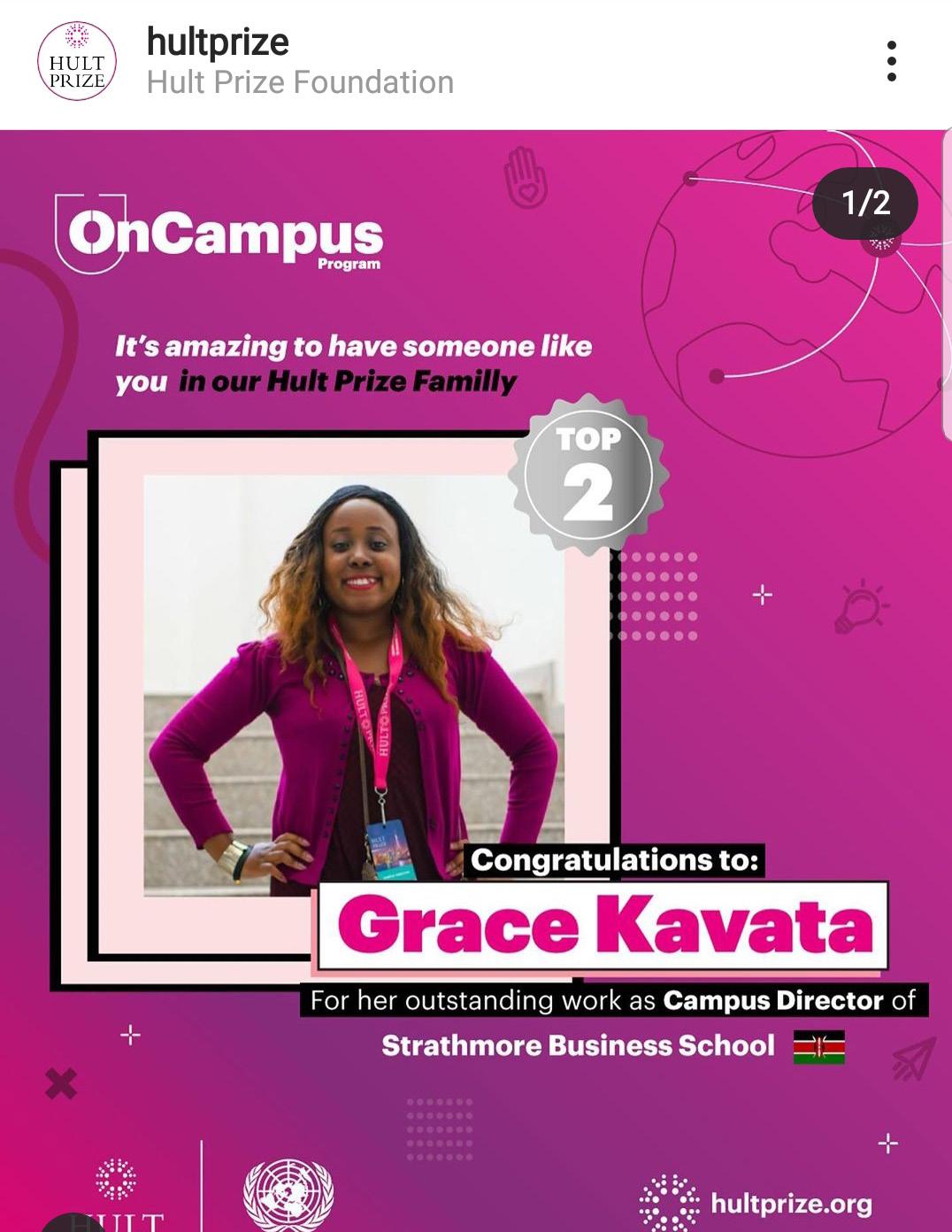
Strathmore University Scoops the Title of Second Best Campus Director Globally for the Hult Foundation
Going back to two years ago when I walked into Dr. Hilda Mogire’s office to introduce the Hult Prize to Strathmore University Business School was a day that changed my life. At her office, I was met with great support, a listening ear, and a Business School ready to invest in its students. The leadership at SBS right from Dr. Njenga to Dr. Mathuva, Stella Mwangi, Dorcas Otieno, and Sarah Muigai had faith in the Hult Prize and I was not set to disappoint. Indeed Strathmore had to be the Harvard of Africa and for me, this was the beginning of a change journey through the Hult Prize at the Business School. The Hult Prize is a Million- Dollar Nobel Prize for students that aims at empowering the youth through sustainable businesses. It is an all-year-
round competition that revolves around various themes that are inspired by the United Nations Sustainable Development Goals. Over the years, Hult Prize at Strathmore has seen over 300 students participate in this challenge and embark on various businesses. Last year was especially a great year for the Hult Prize at Strathmore University after scooping the title of the second-best Campus Director Globally by the Hult Prize Foundation.
During the On-Campus competition, we had a great panel of judges, amongst them Honorable Martha Karua, The Ministry of Environment, Mercy Kyallo, CEO Yallo Leather, Wycliffe, and Sonia (Winners of Hult Prize 2016), Serah Katusia Managing Director Mediacom East Africa and Fred Omondi among many others who mentored the students. My biggest appreciation goes to Strathmore University Business School which has provided a very strong support system through mentorship, funding, and travel opportunities. I was able to go to London with Dr. Hilda and we spent a few days at the Ashridge Castle meeting other bright minds from different parts of the world. SBS is set to host the Africa Regionals in years to come and students should embrace such opportunities. All the above were amazing things that led to this win and the current Hult Prize Era ought to keep up with the Legacy and bring home the $ 1,000,000 in 2020.
Article by Grace Nyamai Email: grace.nyamai@ strathmore.edu

From the Partnerships Desk
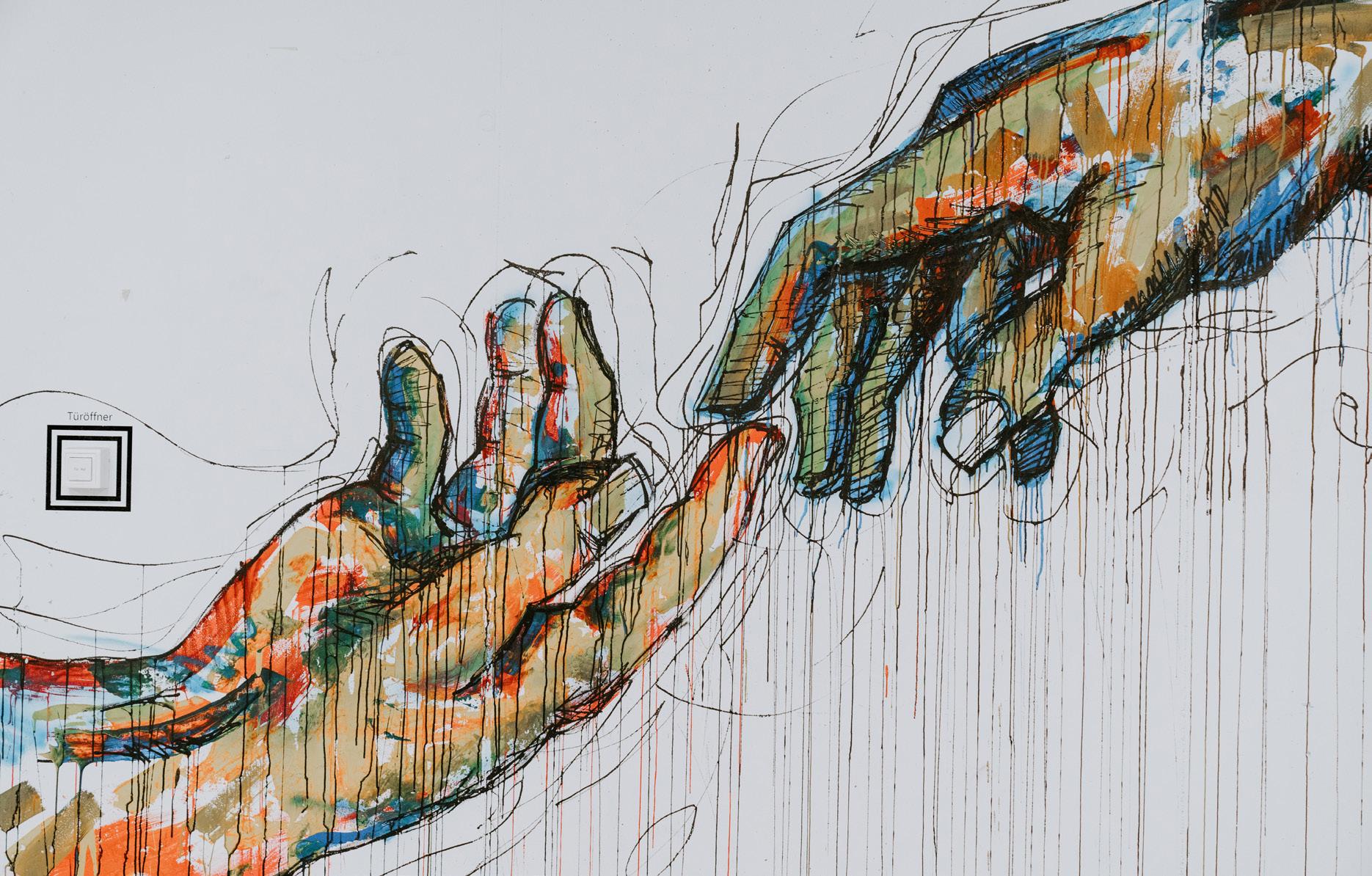
From the SBS Partnerships Desk
Over the past year, SBS has forged quite a number of partnerships aimed at strengthening our brand and our relationships.
1. ERASMUS MOBILITY GRANT WITH SGH WARSAW UNIVERSITY IN POLLAND
Strathmore University has been granted an Erasmus+ program grant which will see staff and students engage in a mobility program with our partner institution SGH Warsaw University in Polland. The grant awarded caters for three staff members; two faculty members and an administrative staff member, along with student mobility of up to 10 undergraduate students under the Bachelor of Commerce Degree category., The cooperation shall also see the Warsaw university faculty teaching in Strathmore University and SU faculty teaching in Warsaw under faculty exchange programs even as the partnership grows to other frontiers.
2. PARTNERSHIP WITH LONDON SCHOOL OF ECONOMICS AND STRATHMORE UNIVERSITY
Strathmore Business school has been appointed to be part of the Digital Rights, the Datafication and Digital Rights in East Africa Network. The project being led by the London School of Economics and is supported by UK Research and Innovation (UKRI) on Digital Innovation for Development in Africa (DIDA). The project is based on a proposed network which was framed around this central question: How does the ‘datafication’ of everyday experiences of the public sphere and economic activity affect the nature and possibilities of digital rights for citizens, vis-à-vis states, the market, and each other? Countries of focus are Kenya, Somalia, and Ethiopia. The co-investigators for this project include; King’s College London and University of Cambridge, Strathmore University. The Funder has undertaken to provide funding for the Project and the Lead shall act as a recipient of the funding for the Parties. The total sum of the Award amounts to £128,348
From the Partnerships Desk
3. MOU BETWEEN SBS AND PRESIDENTIAL DELIVERY UNIT
The purpose of the partnerships between SBS and PDU is to provide a framework for collaboration among the Parties on the design, planning, and implementation of a Public Lecture Series aimed at bringing together public, private, and civil society actors to openly discuss the experiences being faced in various socio-economic sectors, to share the challenges, and suggest ways of addressing them, and to produce actionable outputs.
4. KENYAN HEALTH FEDERATION MOU
This Memorandum of Understanding (MOU) is entered into by SU and KHF with a joint purpose to conduct joint research on health-related matters of mutual interest which may eventually lead to joint development of case studies by both institutions. Developing new capacity building Programmes and organizing, planning, and executing joint events. The Kenya Health federation will also award CPD points to all members who attend any healthcare-related program at SBS. This is with a vision to encourage KHF members to embrace a culture of lifelong learning this keeping up to date with emerging issues and technologies in the healthcare space in an endeavor to transform lives
5. ABSA SBS MOU
This is a Training Partnership Agreement designed by SBS for ABSA Kenya Sustainability Supplier Training Strathmore University Business school is responsible for program design and in collaboration with Absa Kenya in order to meet the objectives desired for the program. The program will be delivered via an online platform. Participants will go through four e-learning modules comprising of 15-minute videos each, and a fifth module comprising of a 50-minute video. The modules will also be accompanied by readings and exercises. The program is self-paced and includes webinar interventions after each module. Individuals who complete the program will receive a certificate with the names and logos of Strathmore University Business School and Absa, as approved by the parties and signed by the course director from SBS and the CEO of Absa.
By Mukami Wanjohi

From the Alumni Desk
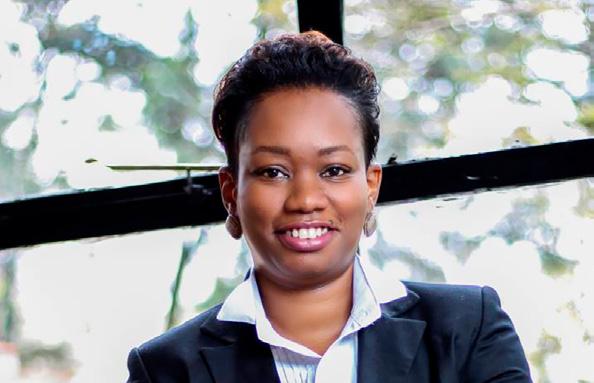
SBS Alumna Wins the Commercial Law Litigator of the Year 2020 Award
Strathmore University Business School wishes to congratulate Stella Muraguri on her Award as the Commercial Law Litigator of the Year 2020 by the International Advisory Experts.
Stella is a managing partner at MMW Advocates LLP. She has been described as a young passionate advocate with a knack for complex commercial litigation matters and an eye for strategic value in offering solutions to her clients.
Stella is an alumna of the Owner Manager Programme.
Congratulations Stella!
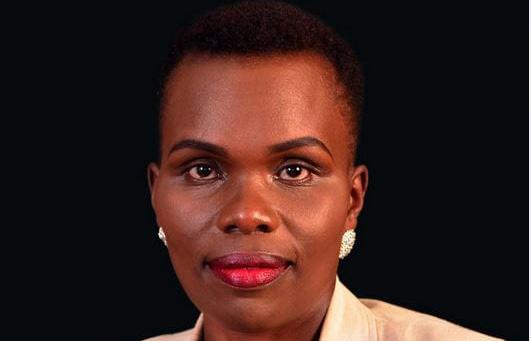
Strathmore University Business School congratulates Carol Koech on her appointment as Country President, Schneider Electric East Africa, and becomes the first Kenyan woman to head the company as Country President in the region. Strathmore University Business School Congratulate Priscilla Muhiu on her appointment as General Manager, Glovo Kenya.
Prior to her appointment, Priscilla was the Head of Africa Marketing for Glovo, where she headed the team that successfully launched Glovo in Kenya and Côte d’Ivoire.
Priscilla is an alumna of the SBS Executive MBA Programme.
Congratulations Priscilla!
Carol will lead Schneider Electric’s growth vision in the region and drive alignment in strategy and process across its Building, Datacenter, Industry and Access to Energy business portfolio.
Carol has over 15 years of career experience leading operations in Sub-Saharan Africa spanning from finance to project development, engineering, and commercial positions.
Prior to joining Schneider Electric, she was a senior sales manager at General Electric and has also worked at Unilever for five years.
Carol is an alumna of the SBS MBA for Executive Programme
Congratulations Carol!
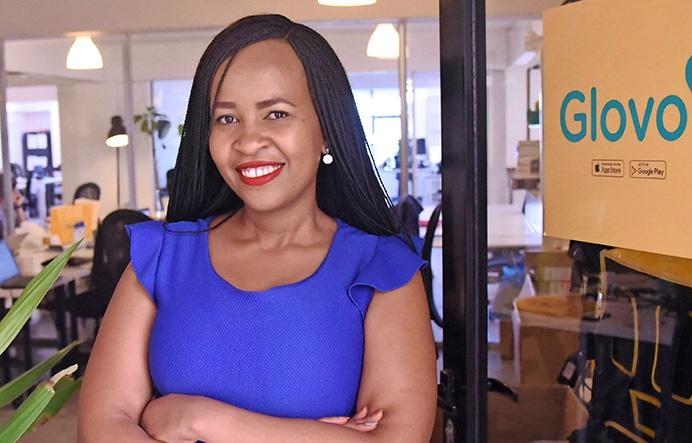
SBS Alumna Appointed as General Manager, Glovo Kenya SBS Alumnus Appointed CEO of Warehouse Receipt System Council (WRSC)
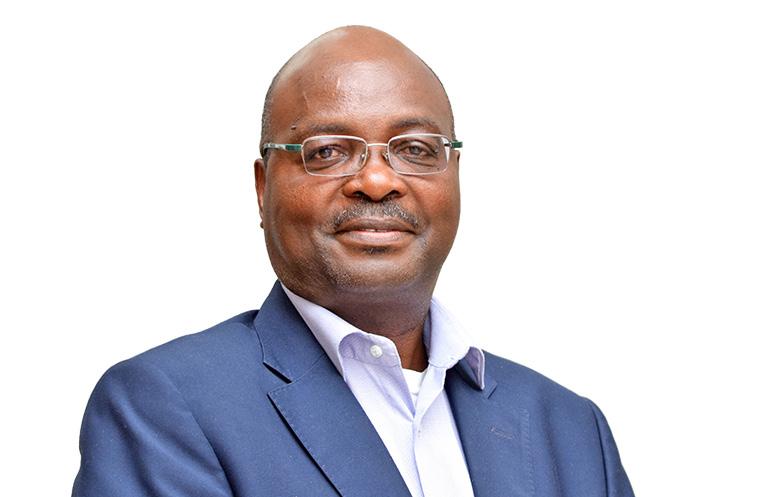
Strathmore University Business School congratulates Samwel Ogolla on his appointment as the CEO of the Warehouse Receipt System Council (WRSC).
Sam Ogola was previously a Director at the Agricultural & Food Authority - Tea Directorate from January 2016 to June 2018. Congratulations Samwel!
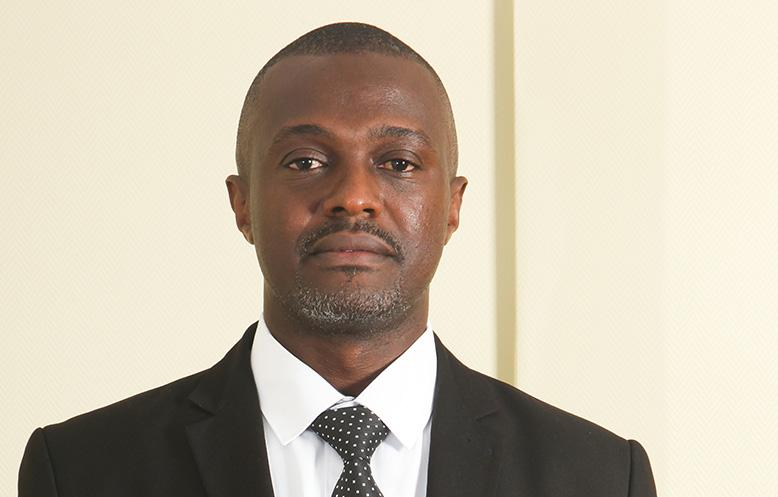
Strathmore University Business School Congratulates Hassan Gamaliel on his appointment as Acting Chief Executive Officer, Stima Sacco Society.
Hassan will from July 2020 double up as the Chief Manager Strategy, and Business Development and Acting CEO.
Hassan is in the Senior Management Leadership Programme class of 2020. Congratulations Hassan!
From the Alumni Desk
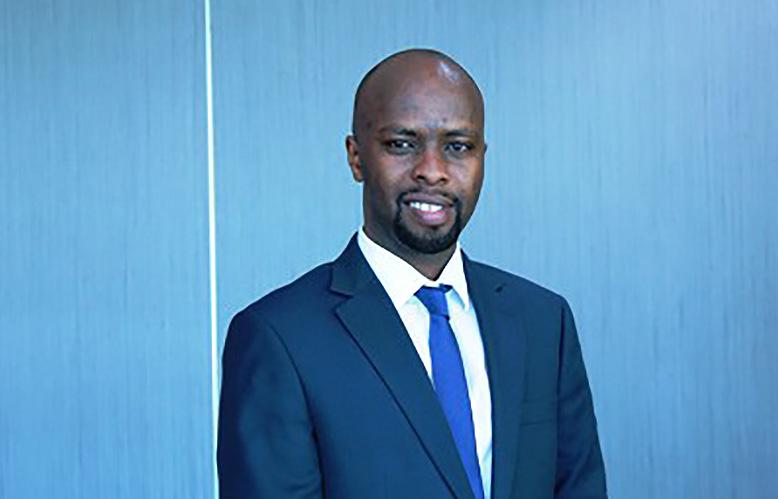
Strathmore University Business School congratulates Andrew Kabeera on his Executive Director at Post Bank Uganda.
Andrew is a seasoned banker, Kabeera, and brings to the table a wealth of experience in Uganda’s financial services sector. He has previously worked at Standard Chartered Bank and more recently as the Chief Operating Officer at Uganda’s dfcu Bank.
He is an alumnus of the CEO Apprentice Programme (CAP) Uganda
Congratulations Andrew! Sanda has been an important part of the SBS community and was a key partner in designing the concept of the SBS Sustainability Center in partnership with the Kenya Climate Innovation Center (KCIC) and other corporate partners.
She was also key in designing and launching the flagship Africa Sustainability Entrepreneurship Programme and establishing the Creating Shared Value offering for the East African market.
Sanda is an alumna of the Advanced Management Programme He was also recently nominated among the top 35 under 35 leaders in Kenya.
Congratulations Ezra! Keep soaring high!
Ezra Yego is a third-year Bachelor of Commerce (BCOM) student.
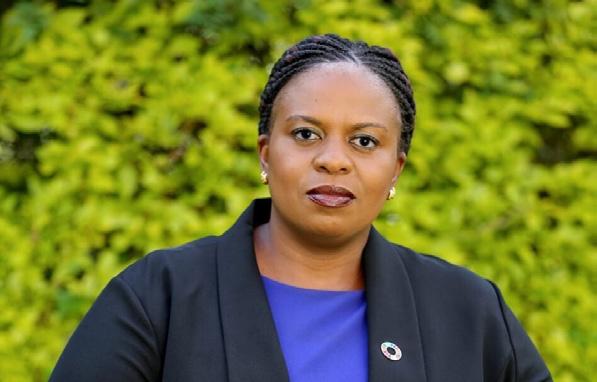
Sanda Ojiambo Appointed to Head the UN Global Compact
Strathmore University Business school congratulates Sanda Ojiambo on her appointment as the Executive Director of the Global Compact. Prior to her appointment, Sanda was the Head of Sustainable Business and Social Impact at Safaricom PLC.

SBS Bachelor of Commerce Student Appointed to the Generation Unlimited (GenU) Steering Committee
Strathmore University Business School wishes to congratulate Ezra Yego on his appointment to the Generation Unlimited Steering Committee.
Ezra was appointed by the Office of the President as one of the two youth in the Generation Unlimited Kenya Initiative. Generation Unlimited is a multi-sectoral partnership that aims at ensuring all youth between 10-24 years are either in school, acquiring skills or in employment by 2030.
Ezra has steadily ascended to a national coordination role for the United Nations Sustainable Development Solutions Network Youth (SDSN). Ezra is an ardent cam-
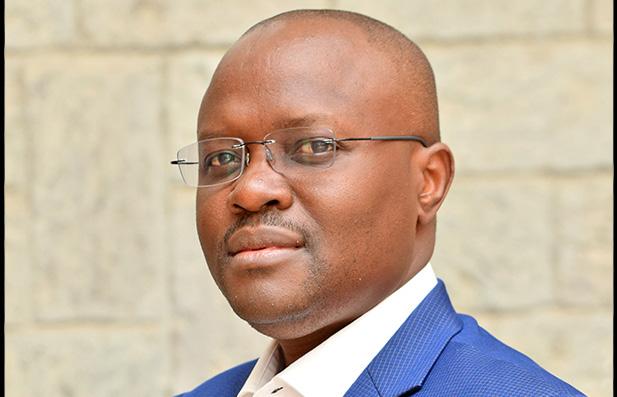
Strathmore University Business School congratulates George Rwabajungu on his appointment as CEO of Uganda Electricity Transmission Company Limited (UETCL) effective 1st July 2020.
George has previously been UETCL’s Manager, Finance, Accounts, and Sales and brings over 17 years of senior leadership.
He has also worked at the National Housing and Construction Company Limited as the Chief Finance Officer, before moving to Uganda Railways Corporation as the CFO and Administration Officer under an interim Contract by the Transaction Advisor. He has also worked at Map Switch Uganda Limited as its Finance Director.
George is an alumnus of the Senior Management Leadership Programme.
From the Alumni Desk
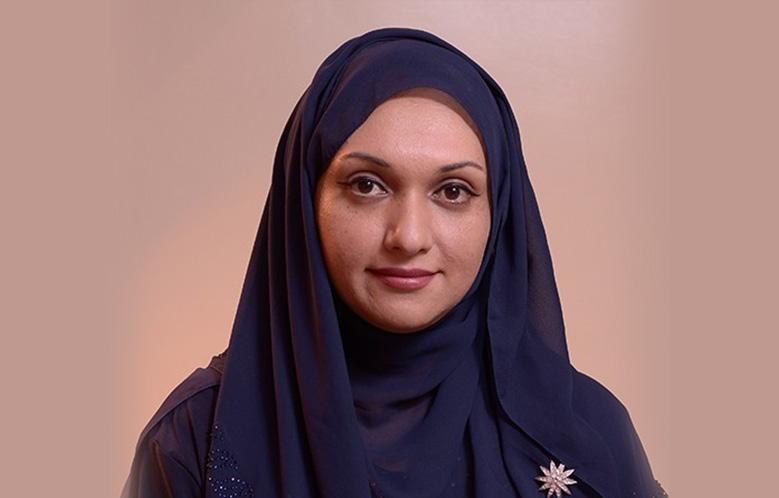
SBS Alumna Appointed CEO MP Shah Hospital
Strathmore University Business School wishes to congratulate Toseef Din on her appointment as CEO, MP Shah Hospital.
Toseef brings to the table, 20 years of experience in finance and healthcare management. She has also been credited with offering expertise in leading financial strategies to facilitate sustainability as well as growth plans and improving existing processes and systems to help the top healthcare facility deliver professional affordable care services.
Prior to her appointment, Toseef served as the Head of Finance and later as the Chief Operating Officer at the same organisation.
She holds an Honorary Doctorate in Humanities from the United Graduate College and Seminary International and a Masters with distinction in financial management from Heriot-Watt University Edinburgh (MSc Financial Management).
Toseef is an alumna of the Managing Healthcare Businesses Programme and the Executive Coaching for Managers Programme.
Congratulations Toseef!
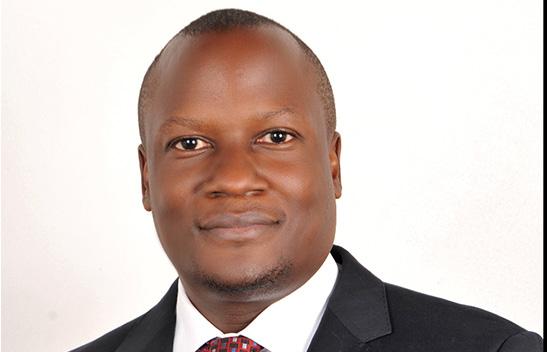
SBS Alumnus Elected Chair of Uganda Bankers Association
Strathmore University Business School congratulates Mathias Katamba on his election as the chair of the Uganda Bankers Association.
Mathias is the CEO of the dfcu Bank, Uganda, and is an alumnus of the SBS Advanced Management Programme (2018) and the SBS Executive Coaching Programme (2017).
He was previously the Managing Director of Housing Finance Bank for the 5 years leading up to November 2018. He has also served as the Chairman/ National President of the Association of Microfinance Institutions in Uganda (AMFIU), member of the investment committee of the Deutsche Bank Global Commercial Microfinance Consortium, member of the Steering Committee for Client Protection (SMART campaign) at the Center for Financial inclusion and director at the Private sector Foundation in Uganda.
Mathias is an internationally certified coach by ICF attained at Strathmore Business School and is an Adjunct Certified Executive Coach at the Uganda Leadership Academy. He is coaching participants of the CEO Apprenticeship Program at the SBS Uganda Leadership Academy.
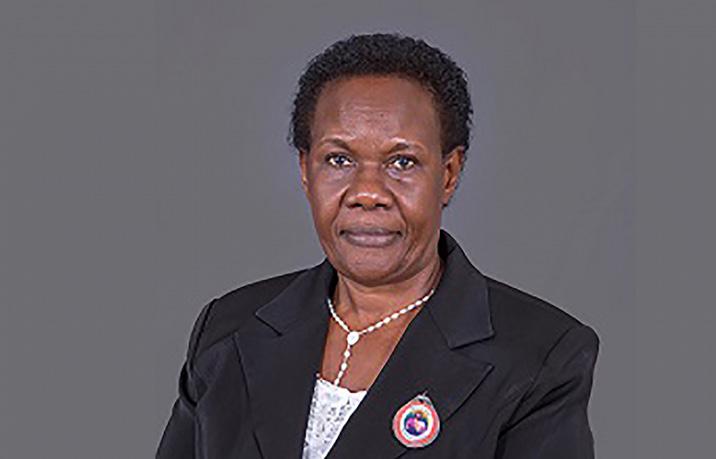
SBS Uganda Advisory Board Member Appointed Petroleum Authority of Uganda (PAU) Chairperson
Strathmore University Business School is pleased to announce the re-appointment of Dr. Jane N. Mulemwa as the PAU Chairperson for a second term.
Dr. Jane Nambakire Mulemwa is a qualified and experienced scientist who holds a Ph.D. in Physical Organic Chemistry, from The Queen’s University of Belfast, Northern Ireland.
She has over thirty (30) years’ experience in leadership, administration, policy development and analysis, strategy formulation and evaluation, science education, and academic research.
She serves on the Board of Directors of several organisations and was the Deputy Chairperson of the Education Service Commission, Uganda, between 1998 and 2015. Dr. Mulemwa was the Chairperson of the inaugural Board of the PAU.
From the Alumni Desk
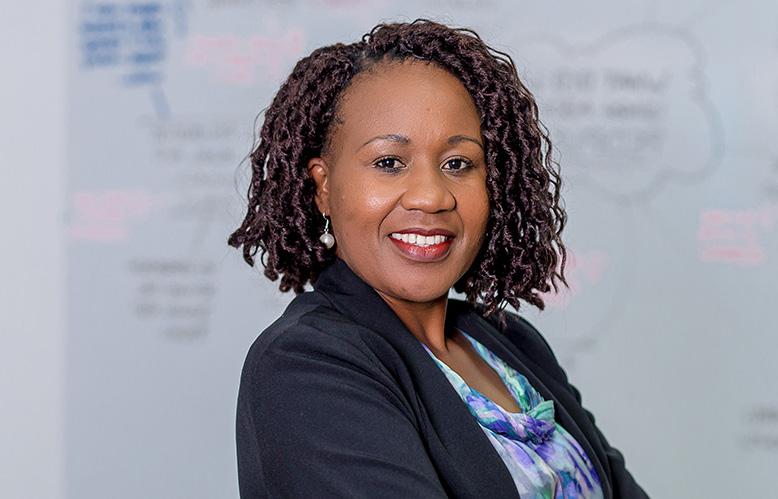
SBS Alumna Appointed Board Member Exim Bank Tanzania
Strathmore University Business School wishes to congratulate Irene Mlola on her appointment to the Board of Exim Bank Tanzania.
Irene has more than 19 years of experience in leadership and management positions across the financial and telecommunication sectors. She has previously worked in strategic and leadership roles in multinationals such as Scotia Bank, Royal Bank of Canada, Barclays Bank, Vodacom, and Airtel.
She is currently the Operations Director at the Financial Sector Deepening Trust, Tanzania.
Irene is an alumna of the CEO Apprentice Programme (CAP), 2019 at the SBS Tanzania Leadership Development Academy.
Congratulations Irene!

SBS Alumnus Appointed First Tanzanian Managing Director, Songas Tanzania
Strathmore University Business School congratulates Anael Samuel on his appointment as Managing Director, Songas Tanzania.
Following this appointment, Anael became the first Tanzanian to assume the top role at the independent power generating firm. He has been at the helm of Songas Tanzania since February 2020.
Prior to his appointment, Anael served as the Chief Finance Officer at Songas Tanzania before which he held senior roles at Tanga Cement, Unilever, and Intra Energy Tanzania Limited
Anael is an alumnus of the CEO Apprentice Programme (CAP), 2019 at the SBS Tanzania Leadership Development Academy.
Congratulations Anael!
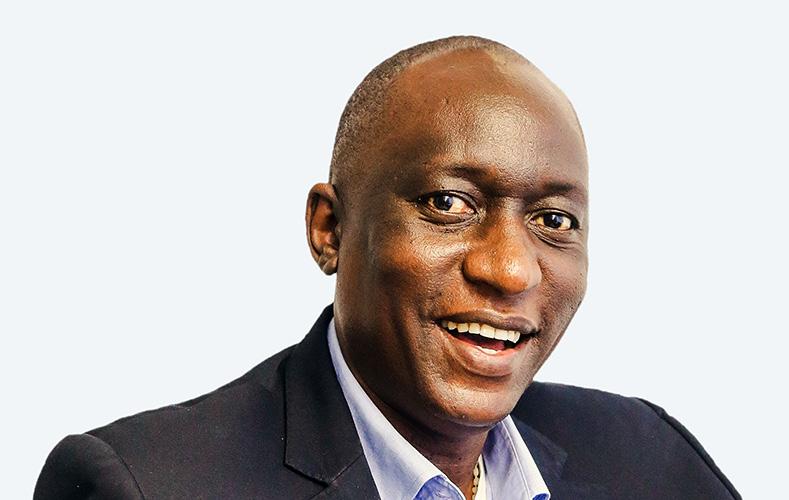
SBS Alumnus Appointed Acting CEO of Access Bank, Tanzania
Strathmore University Business School Wishes to Congratulate Julius Ruwaichi on his appointment as Acting Chief Executive Officer of Access Bank Tanzania.
Julius joined Access Bank Tanzania in 2016 as the Chief Financial Officer, prior to which he worked at NIC Bank Tanzania in a similar capacity. For more than 8 years, he has worked in different roles in the finance department including Financial Controller at Standard Chartered Bank Tanzania and NBC Bank.
Julius is a participant of the 2019 CEO Apprentice Programme Tanzania.
Congratulations Julius!
From the Alumni Desk

SBS Alumni Make it to the Top 10 HR Managers in Uganda List
Strathmore University Business School celebrates Florence Mawejje, Joseph Ajal, Patrick Ngolobe, Abdul Kibuuka, Harriet Nabakooza Musoke for their recognition as top HR leaders in Uganda.
Florence, Joseph, Patrick, Abdul, and Harriet were named among the top HR directors in Uganda by the CEO East Africa Magazine.
Florence Namatta Mawejje is currently the Human Resources Director at Centenary Bank and an alumna of the Women Directors Leadership Summit (2018) and the CEO Apprentice Programme (2016).
Joseph Ajal is the Head Talent Development and Engagement, Airtel Uganda, and also the Chief Executive Officer at Precision HR Proprietary Limited. Joseph is an Adjunct Faculty member at the SBS Uganda Leadership Development Academy.
Patrick Ngolobe is the Chief Executive Officer, Africa Executive Leadership Solutions (AELS), and was a participant of the CEO Apprentice Programme (2015). Abdul Kibuuka is the Founder and Chief Executive Officer, True North Consult Limited, and an alumnus of the CEO Apprentice Programme 2014.
Harriet Nabakooza Musoke is the current Head of Human Capital at Dfcu Bank and was part of the Dfcu Bank Leading Change Programme (Custom Programme). She was also a participant of the Effective Director Programme,2019
Moses Mbubi Witta is a Manager at Stanbic Holdings Uganda and was a participant of the CEO Apprentice Programme (2015).
Milton Stephen Owor is the Head of Human Resources and Administration, NSSF Uganda and is a participant of the CEO Apprentice Programme (2017)
Florence, Patrick, Moses, Milton, Abdul, and Harriet are all Alumni of SBS Uganda Programmes and very supportive talent partners.
From the News Desk
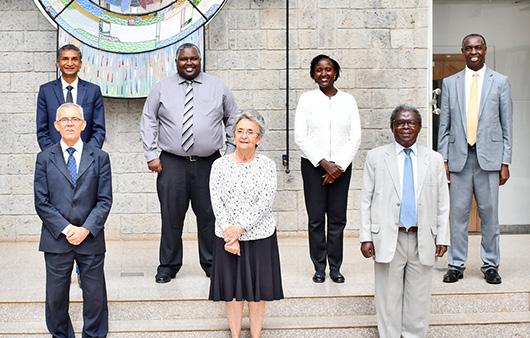
The Strathmore Leadership Academy at Strathmore Business School (SBS) successfully facilitated the Senior Leaders Programme for Strathmore University Management Board.
The Senior Leaders Programme (SLP) is a Custom Programme designed specifically for the Strathmore University Management Board. The Programme has incorporated aspects of Strategy and Execution, in recognition of the turbulence and changes in the higher education sector occasioned by the Covid-19 pandemic globally.
The Training Programme was conducted through a hybrid model, which consisted of face to face and online training with facilitators from Kenya, Nigeria, Europe, and South Africa. The training comprised lectures, models, and theories and was highly interactive; facilitating discussion, debates, and introspection. Board members to focus internally and externally, thus facilitating processes and lectures that allow you to consider the current issues, opportunities, and challenges facing the University while understanding the external forces and factors that impact on the University.
By Juliet Hinga
From the News Desk
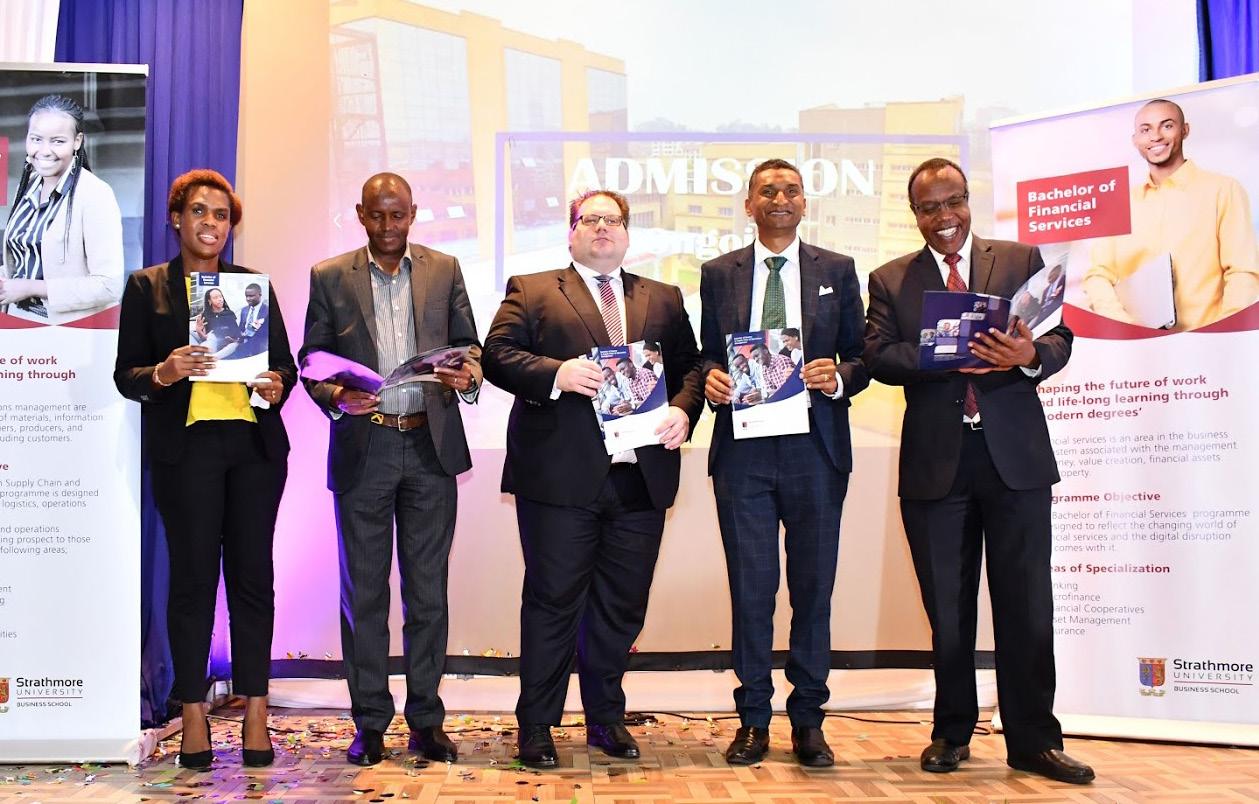
Shaping the Future of work and life-long learning through ‘Modern Degrees’
Strathmore University Business School on 10th January 2020 launched two ‘modern’ Undergraduate academic degrees: the Bachelor of Financial Services (BFS) and the Bachelor of Science in Supply Chain and Operations Management (BSCOM).
Speaking during the launch, Dr. Andre Kreie, Director of Global Logistics Education, Kuhne Foundation, emphasized the need for universities and institutions of higher learning to reinvent and modernize their teaching methods. “What we teach today will be very much outdated in the next 20 years,” he said.
These programmes have been designed and pitched as “modern degrees” that appeal to the demands of today’s workplace and the Fourth Industrial Revolution. Both programmes are designed to expose learners to practical, theoretical, application, research, and human skills that are necessary to achieve the demands of the future of work. The BFS programme aims at unifying the financial services sector by providing a firm foundation in the world of work in financial management, business analytics, and skills of people working in the financial sector, community development, asset, and pension management, insurance sector, microfinance sector, banking sector, financial cooperatives sector and emergent financial services providers in general.
The BSCOM programme is designed to integrate supply chain, logistics, operations, and digitalization. This programme will be offered in partnership with the Kuhne Foundation. Special emphasis is placed on Production 4.0, Logistics 4.0, Big Data, BlockChain, automation, and artificial intelligence and how they will impact supply chain and operations in the near and far future.
Owing to the workplace demands for futuristic upskilling and reskilling, Industry 4.0, and the digital revolution, current and future markets demand training that is practical, futuristic, relatable, and lifelong. This can be achieved by equip-
ping learners with skills relevant to the workplace and the ability to be integrated thinkers and decision-makers. It is key for the training to improve the student as an all-rounded person through appreciation of the “human skills”, which are increasingly becoming relevant in today’s work environments. It is therefore crucial that institutions of higher learning design their programmes to reflect the skills demanded by the future workplace.
By Juliet Hinga
From the News Desk

From the News Desk

Strathmore University Business School partnered with Shared Value Initiative Africa to host the CEO Dialogue Roundtable. The CEO Dialogue Roundtable sought to connect leaders across Africa and provide a platform for African leaders to deliberate on the issues affecting their economy.
With the business uncertainty and complexity brought about by the pandemic, we found that it was critical to support business leaders navigate through, thrive, and develop turnaround strategies during and post-Covid – 19.
The CEO Dialogue Roundtable was broken down into four virtual sessions, each covering a different area of discussion. The first session tackled the Future of work and was themed: ‘The Future of Work: Impact of the Digital Economy on Africa’s Growth’ The second session sought to look at the Emerging Challenges and Opportunities for Financial Markets post pandemic. The third session looked at the role of Public-Private Partnerships (PPPs) as an instrument for economic recovery post pandemic. The fourth and final session for the year looked into the Africa Continental Free Trade Area Agreement and its role in pivoting Africa to realise its business potential globally.
By Juliet Hinga
From the News Desk

SBS and NCBA Host the Annual SME Conference 2020
SBS and NCBA Bank partnered to host the Annual SME Conference 2020. This year’s event was unique in that it was the first-ever virtual SME conference and attracted more than 200 attendees. Our theme is ‘Unlocking SME Potential to Increase Resilience and Excellence in Uncertain Times’.
During his opening remarks, Dr. George Njenga, SBS Executive Dean, urged MSMEs to strengthen themselves to garner support by association and networking. “Individually, MSMEs are unable to participate in policy decisions at the National and County government levels. Without associating and forming cohesive networks, they may not invite attractive and cost-effective funding. Yet, they are the backbone of the African Economy. It is necessary that the MSME networks spread across the entire country. This would ensure the inclusion of a vast population currently excluded from policy Government and Private sector interventions. A large number of SMEs are operating at the county level. Furthermore, women entrepreneurs need special mention and a support framework because they account for over half of the MSME members,’’ he said.
John Gachora, NCBA Group Managing Director, spoke to the importance of the survival and growth of SMEs in Kenya. “SMEs are the engine driving the economy by creating employment for the youth and are key supply chains to households,” he said. “With the current pandemic, many businesses have closed with others reducing their headcount. Even the ones that have remained resilient say their cashflows are reducing fast. However, it is good to see factories repurposed to supply PPEs and hotels refitted to become isolation centers,” he added.
Lawrence Karanja, CAS, Ministry on Industry, Trade, and Cooperatives while delivering Hon. Betty Maina, Cabinet Secretary Ministry of Industry, Trade, and Cooperative’s keynote address, emphasized the government’s commitment to supporting SMEs. “We cannot ignore the fact
From the News Desk
that SMEs account for 98% of all businesses in the country and employ about 15 million people,” he said.
In response to the pandemic, the government has put in place stimulus measures to support SMEs, such as lowering value-added tax and corporate tax along with credit guarantee schemes. Lawrence noted that on top of the reduction of taxes, the credit guarantee scheme allowed the government to guarantee access to credit facilities for SMEs, something they may not have been able to access before.
According to a Kenya Private Sector Alliance (KEPSA) Survey conducted between May and June 2020, 74% of businesses surveyed reported high or very high negative impact due to the pandemic. The highest impact was among small and micro enterprises where 83% and 76% respectively reported high or very high negative impact as compared to 50% of large enterprises. Speaking at the event, Carole Karuga, (KEPSA) Chief Executive Officer, highlighted several initiatives by KEPSA aimed at mentoring and training businesses led by women and youth.
Kwame Owino, CEO Institute of Economic Affairs, emphasized the need for SMEs to build their business on technology, “building on a technology platform is going to be inevitable for businesses in the new normal,” he said. Adding on the importance of technology, Juliana Rotich, Co-Founder, Ushahidi, BRCK, Boya App said, “the fourth industrial revolution is powered by technology and provides the perfect opportunities for entrepreneurs to rethink and reorganize their business models to provide services in different ways.”
SMEs jointly contribute to approximately 30% of GDP and 83% of employment in Kenya. They have been one of the primary drivers of economic growth in the country, despite financing constraints and a competitive business environment. SMEs cannot wade through the murky waters of the pandemic alone, they need support in rethinking, rebooting, and reorganizing their business models to adapt to the new normal.
The SME Conference is a joint initiative by SBS and NCBA Bank that aims to create a forum where the financial sector, higher education, government stakeholders, and SMEs can have candid conversations on issues affecting Small and Medium Enterprises. The conference provides a platform for SMEs to engage the government, the financial sector, and higher education stakeholders on challenges and opportunities available for SMEs.
By Juliet Hinga
From the News Desk
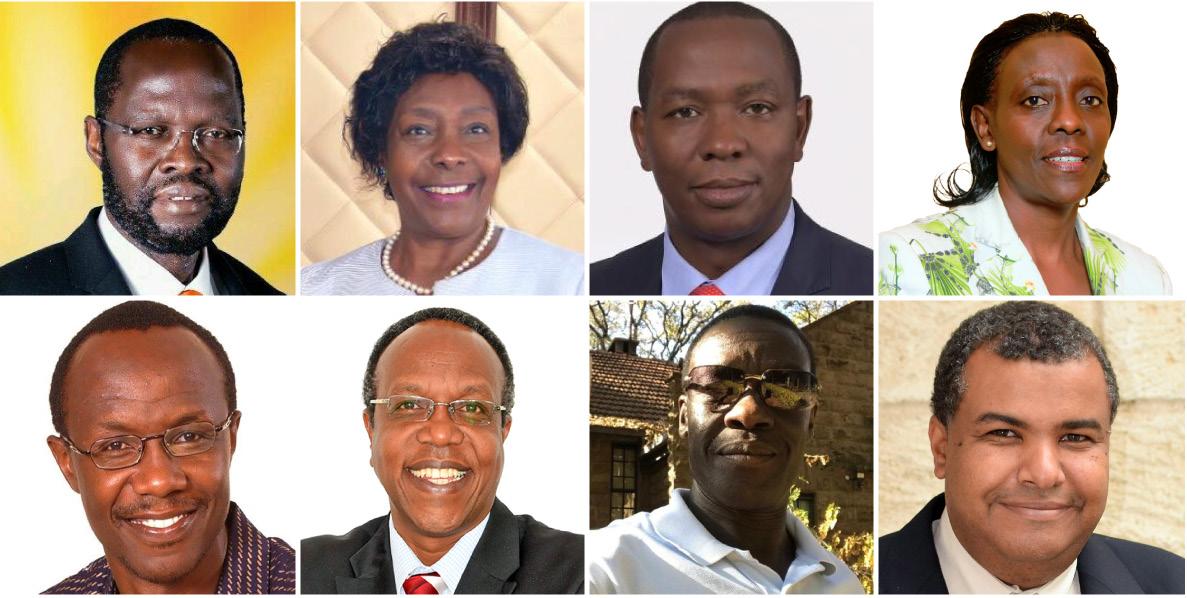
Positioning Counties for Dynamic Growth and Transformation through Competitiveness
Kenya’s ability to improve productivity and produce high-value products and services largely depends on the contribution, as well as the strengthening of the county economies to become hubs of economic growth and innovation.
Given that a country’s economic growth is driven by labor, investment (capital), and productivity, it is imperative that counties find ways to effectively utilize their resources to spur growth and development.
Strathmore University Business School hosted H.E Hon. Prof. Peter Anyang Nyongo, Governor, Kisumu County, H.E Hon. Charity Ngilu, Governor, Kitui County, H.E Hon Ndiritu Muriithi, Governor, Laikipia County, Dr. Jane Kiringai, Chair, Commission for Revenue Allocation, and Dr. David Ndii, Economist to a high-level public policy webinar on county competitiveness.
The webinar sought to provide a platform where leaders can share useful insights on how to bring together specialized talent, capital, technology, information, competing companies, academic institutions, and other organizations to improve the level of competitiveness in counties and develop a specific understanding of how counties can enhance productivity and spur innovation.
Dr. George Njenga, Executive Dean Strathmore University Business School speaking during the webinar highlighted the need to do a global value chain economic analysis to better understand our counties’ position in the global value chain? “Counties need to think broader together for increased economic growth nationally,” he said. “If we do not identify the value chain and train the skills specifically in that crucial productive area, then we will never be productive,” he added.
Speaking during the webinar, Professor Anyang Nyongo, Kisumu County Governor highlighted the strategic initiatives that Kisumu county had undertaken to improve along with the challenges and the post-COVID opportunities that are available for the increased growth of Kisumu County.
Ndiritu Muriithi, Laikipia County Governor highlighted manufacturing, domestic tourism, and agriculture as some of the key opportunities that Laikipia County has been focusing on to improve the county’s competitiveness.
From the News Desk
For Charity Ngilu, Kitui County Governor highlighted unemployment as one of the nuisances in the county that she dealt with in a bid to position Kitui County for increased competitiveness. “We started by equipping the youth with technical skills in a bid to curb unemployment in my county. We started with textile making and garment production, through Kitui County Textile Center (KICOTEC),” she said. She further highlighted the competitive advantages of the county as agriculture, minerals, geographic position, land, and youthful human capital.
Dr. Jane Kiringai, County Revenue Allocation Chairperson urged the governors to look for alternative and innovative financing solutions in a situation where disbursement of funds allocated by the national government may delay. She noted five key factors that may affect county competitiveness: 1. The wage bill effect in the context of county competitiveness takes a lot of fiscal headroom 2. Development approach or paradigm 3. Inclusivity in development 4. Own source revenue mobilization efforts 5. Urban agenda. Dr. David Ndii spoke to the importance of competitiveness analysis for counties. He further categorized competitiveness into three broad categories: cost or price, value, and productivity.“Being cost competitive is often achieved by acquiring cheap labor, which is undesirable. For value, it’s about considering things like experimentalism, like in tourism which allows you to charge a premium,” he explained. “Productivity is where Kenya and the counties specifically can make the difference. There is an urgent need for counties to move from low productivity investments and moving into high productivity investments,” he asserted.
County governments are critical building blocks of Kenya’s aspirations to achieve regional and global competitiveness through optimal utilization of the respective resource bases.
By Juliet Hinga
From the News Desk

Strathmore University Business School has since the onset of the Covid-19 pandemic graduated two cohorts of the Behavioural Communication Strategies for Global Pandemics Programme which is offered in partnership with the New York University’s (NYU) School of Global Public Health (GPH).
At its core, this course focused on the integration of three public health disciplines for emergency action: epidemiology, behavioral health/intervention research, and public health communication to help participants design and implement strategies to respond to the global pandemics with emphasis on the COVID-19 pandemic.
The first cohort of the Programme ran from 18th May 2020 to 14th June 2020 and the second cohort from 2nd September 2020 to 7th October 2020. The participants drawn from around the world and different sectors: the Kenya Ministry of Health and some county governments, the Angola government, the Ethiopian government, UNICEF, World Health Organization (WHO), NYU Master’s in Public Health (MPH) students, hospitals, and the private sector. The rich participant mix gave the class interactions a culturally and geographically diverse feel. The virtual sessions offered a level of engagement to the participants through class discussions, case studies review, syndicate/group exercises as well as networking among peers.
Speaking during the graduation ceremony, Dr. George Njenga, Executive Dean Strathmore University Business School congratulated the graduation and urged them to apply the learnings from the course. He also recognized the participation of the Kenyan, Ethiopian and Angolan governments in the Programme, through their health ministries. He further highlighted the need for increased co-creation in Africa. “Co-creation is elu-
From the News Desk
sive for most African governments. To improve on co-creation, governments need to listen to the public part taking the solutions they co-create and more importantly communicate these solutions well, he said.
Dr. Mercy Mwagangi, the Cabinet Administrative Secretary, Kenya Ministry of Health said that the cabinet secretary was very pleased that several people from the Ministry of Health were able to participate in the Programme. “Going forward, the Ministry of Health would like to engage SBS to conduct a case study on how the Ministry of Health conducted their communication during the Covid-19 pandemic,” she said. Speaking on her experience in the Programme, Dr. Mercy Mwagangi said, “the facilitators were fantastic with a wide breadth of knowledge and experience. I learned a lot.”
Nora Ndopu speaking on the Programme experience said, “the team mix and composition was good. It allowed for country sharing and learning during group discussions in terms of approaches to the pandemic. Overall, it was a great course with many learnings.”
Hiwot Getachew from Ethiopia had this to say, “this course has refreshed my knowledge as well as I have gained a new area of expertise on social and behavior change communication. Furthermore, this course has helped me to be more strategic and professional while coordinating and managing my C4D programs in my future career life. I found the sessions very educational, interactive, and participatory.”
Federica Argurio said,” I strongly believe that this will help me have a clearer understanding of how to lay out the part on risk communication of epidemic outbreaks in my Ph.D. research project. I have received an important contribution from this course that widened my horizons on the understanding of the field of communications but also in the field of research and project management. It was the first time for me to learn about Kenya’s situation concerning epidemics and learn about the situation of COVID-19 in Africa since my main focus is the Middle-East.” “I was very happy with the teamwork: we had great brainstorming sessions and the work was carried out efficiently.
Strathmore University Business School is dedicated to providing timely and well-tailored Executive Education Programmes for executives at all levels. With the onset of the Coronavirus pandemic, we moved our Executive Education Programmes online, to ensure we continue to provide our participants with a world-class learning environment, this time virtually. This gave participants an opportunity to share and reflect on their experiences as they develop new ideas that will help successfully lead their companies through the current crisis and post COVID-19 era.
By Juliet Hinga
From the News Desk

SBS Senior Faculty Member Awarded the Pathways for Innovation in Blood Transfusion Systems in Kenya (PITS Kenya) Grant
On 30th June 2020, Dr. Pratap Kumar, a Senior Faculty member at the Strathmore University Business School was awarded a grant by the US National Institutes of Health (NIH). The award is under the “BloodSafe” program of the National Heart, Lung, and Blood Institute (NHLBI). The grant title is Pathways for Innovation in Blood Transfusion Systems in Kenya (PITS Kenya).
This award is a collaboration between Strathmore University, the lead institution, the Center for Public Health and Development (CPHD) in Kenya, and the University of Pittsburgh in the United States of America (both medical and engineering faculties).
The research consortium aims to define and characterize the blood transfusion system in Kenya to provide evidence for the effective implementation of a diverse set of interventions aimed at enhancing and streamlining the availability and delivery of safe blood in both urban and rural Kenya.
The team, composed of public health, medical and engineering experts, will be working on understanding and reforming the blood transfusion system in Kenya. The BloodSafe program, a collaborative exercise with two other groups in Africa (Ghana and Malawi), is an ambitious attempt to transform the availability of safe blood across the continent.
The first phase of the project over two years will involve a detailed assessment of the entire blood system, and selection of innovations that can be tested over the next four years in systematic trials.
There is a critical shortage of blood that affects many countries in Sub-Saharan Africa. Blood collection rates in these regions are ten-fold lower than rates in high-income countries. The World Health Organization Global Status Report on
From the News Desk
Blood Safety and Availability 2016 reported that only 4% (5.6 million units) of the global supply of blood came from Africa. According to the Kenya National Blood Transfusion Service (KNBTS), the country’s healthcare system requires nearly 500,000 units of blood per year. In 2019, blood collections reached only 30% of this mark.
The research team has designed a multidimensional approach that consists of three clinical pathways determining the urgency of blood transfusions, different phases in blood processing from collection to use, and distinct socioeconomic contexts within Kenya that best represent both urban and rural settings.
The blood transfusion processes span a continuum from blood donation to safe delivery that is complex, expensive, and prone to failure. The consequences are devastating; postpartum hemorrhage, malarial anemia, sickle cell disease, and all other forms of acute hemorrhage claim millions of lives each year due to lack of timely, safe blood. Thus, optimizing blood transfusion services in LMICs represents both a major health challenge and a social imperative.
The Pathways for Innovation in Blood Transfusion Systems in Kenya initiative is likely to have a significant impact on health systems in Kenya by supporting both infrastructure and policies to enable the provision of safe and adequate blood to all citizens.
By Juliet Hinga

From the News Desk
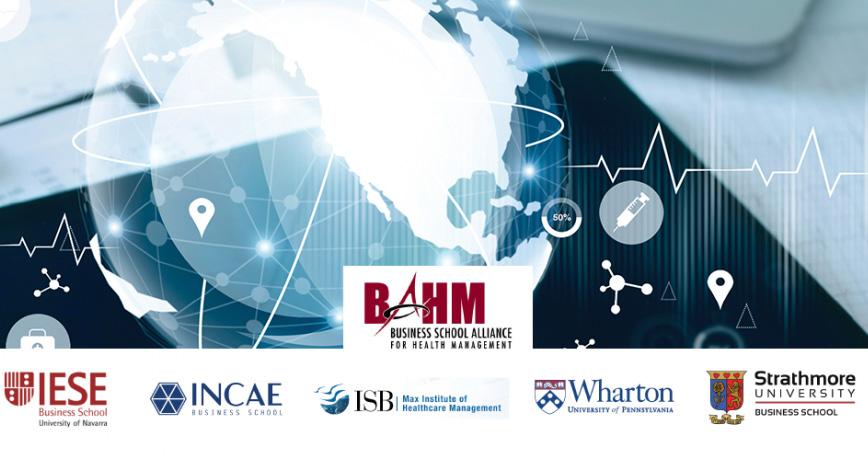
Strathmore University Business School, IESE Health Care Management Program, Spain, and the Wharton School, Department of Health Care Management, USA will co-host the Business School Alliance for Health Management (BAHM) Annual Case Competition 2021.
Other BAHM international collaborating institutions are the Indian School of Business, Hyderabad and Mohali, India, and INCAE Business School, Costa Rica.
This will be the first time that the Case Competition is held virtually, giving BAHM students the opportunity to collaborate across countries and continents. This year’s topic is “Telehealth Business Models in Underserved Communities.” The challenge will be for student teams to identify sustainable business approaches for incorporating telehealth into health care systems targeting under-resourced or underserved communities whether they be in the developed or developing world. The competition will open November 13, 2020, with a networking event and conclude on April 9, 2021, with the announcement of the winners.
Moreover, this year, given the global nature of the pandemic and the virtual structure of the Competition, BAHM is encouraging students from schools based in the US and Canada to collaborate with students from BAHM institutions in Africa (Strathmore), India (Indian School of Business), Latin America (INCAE) or Europe (IESE).
Specifically, BAHM is looking for new business models that encourage wider and permanent use of telehealth and that respond to the pressing needs of vulnerable populations whether in the developed or developing world. The challenges to such implementation are as much social and
From the News Desk
economic as they are technological. By way of example of a focused entry, new business models might focus on the integration of programs offering remote primary care with access to providers as needed, especially when patients require vigilance and support for chronic disease conditions. Entries can also address telehealth needs and opportunities at a health systems level.
By Juliet Hinga



